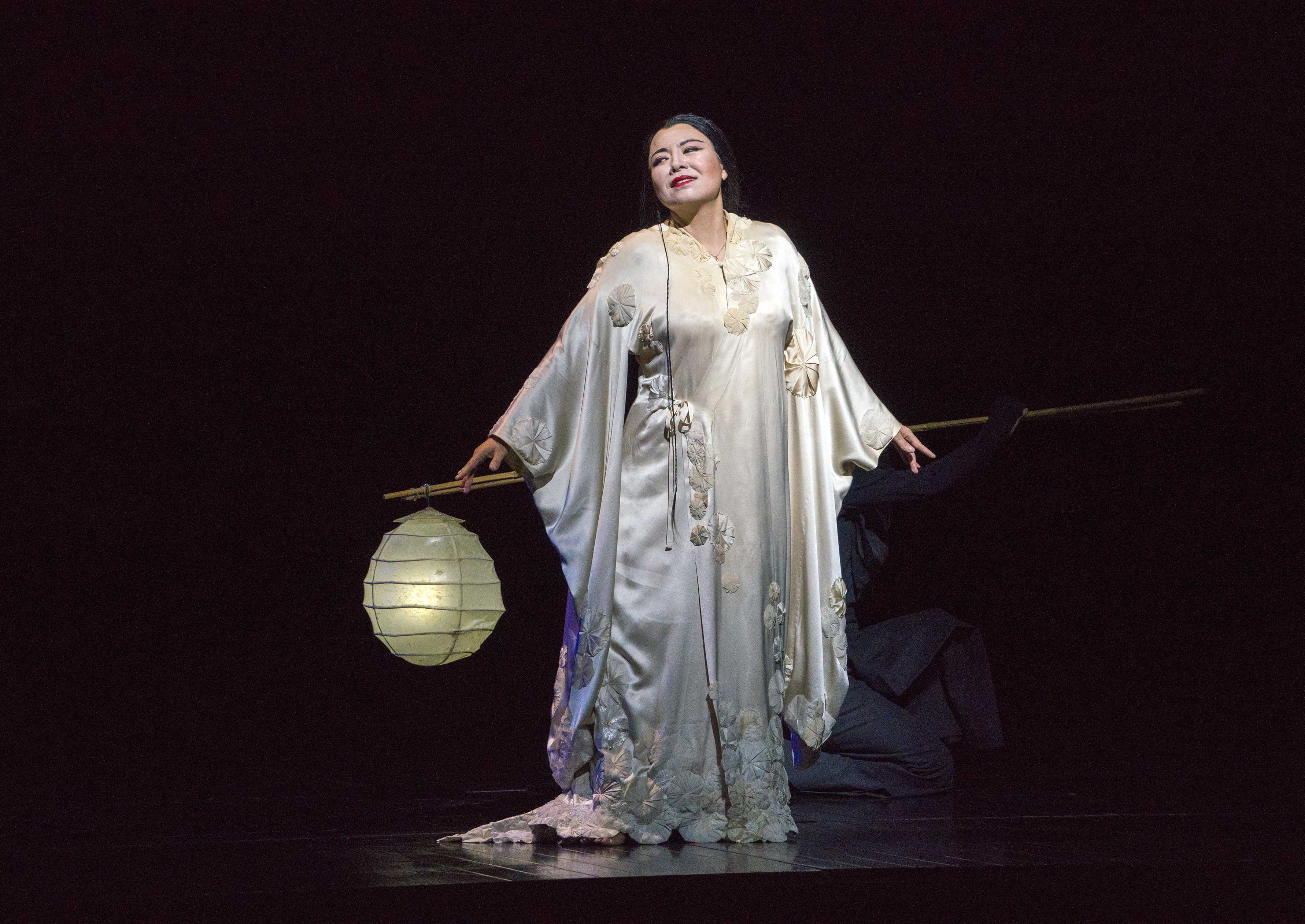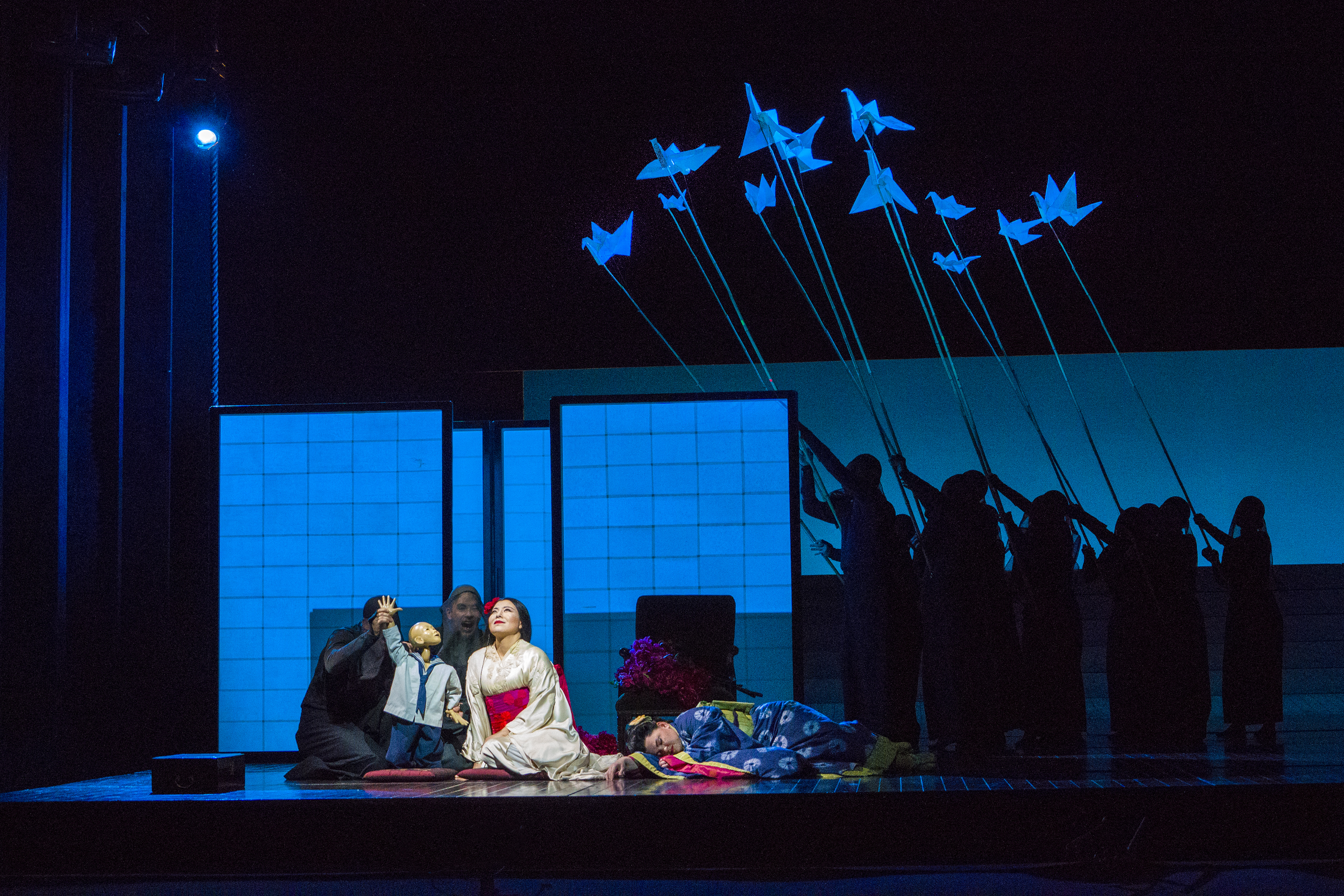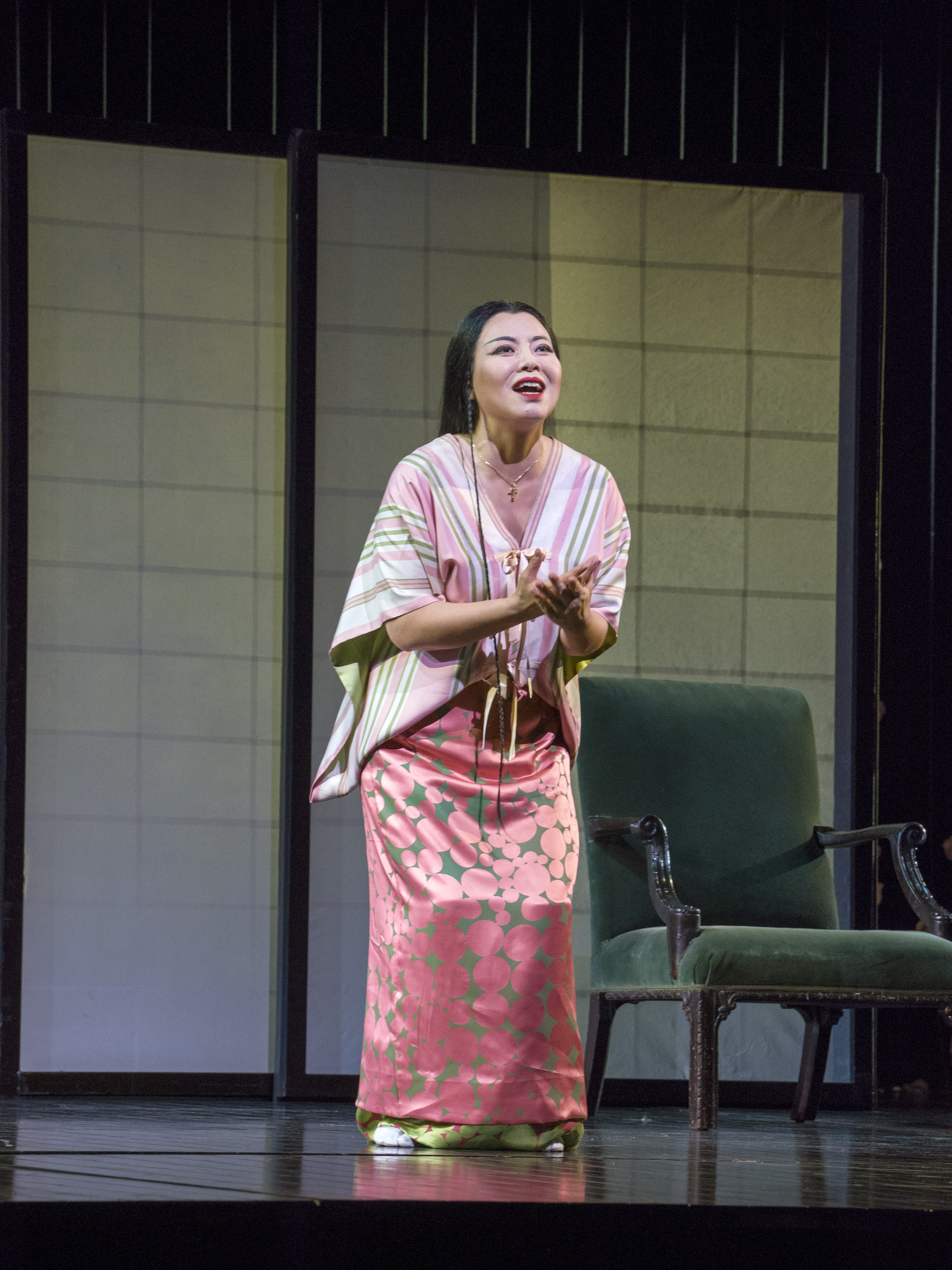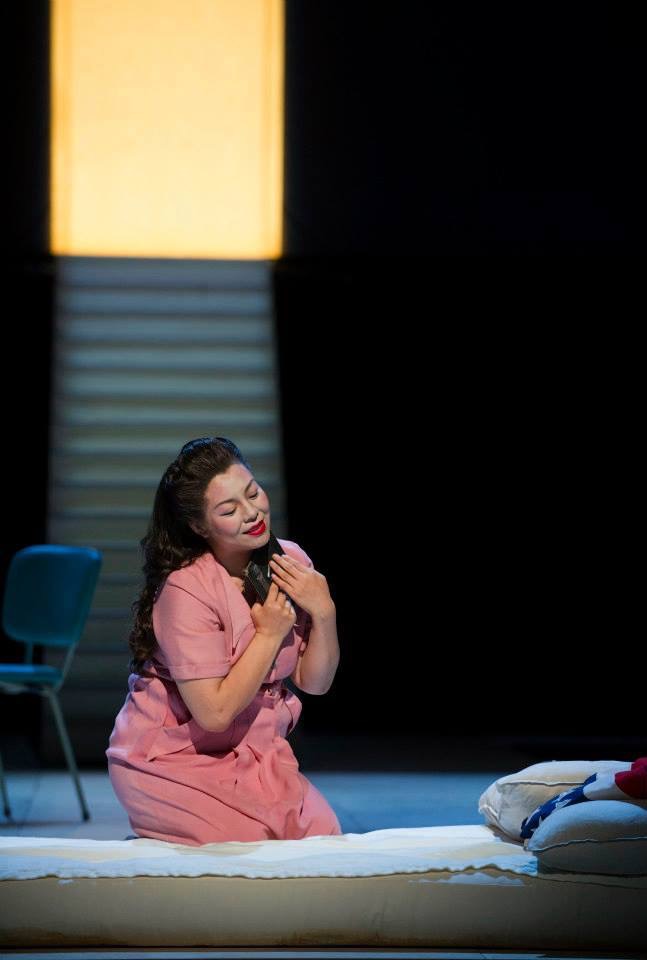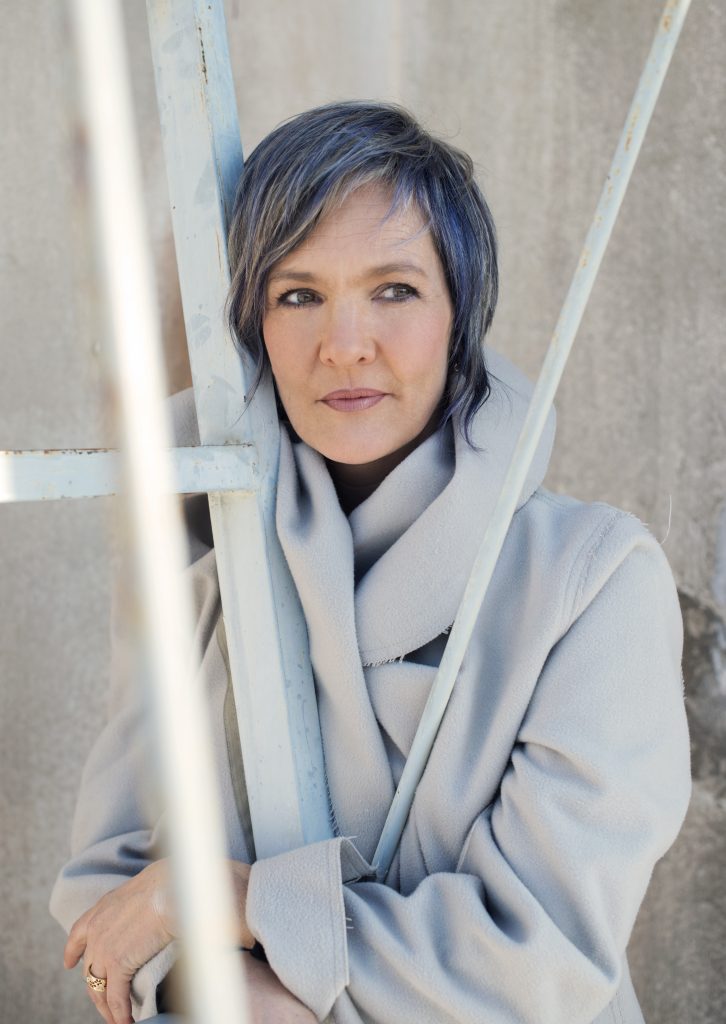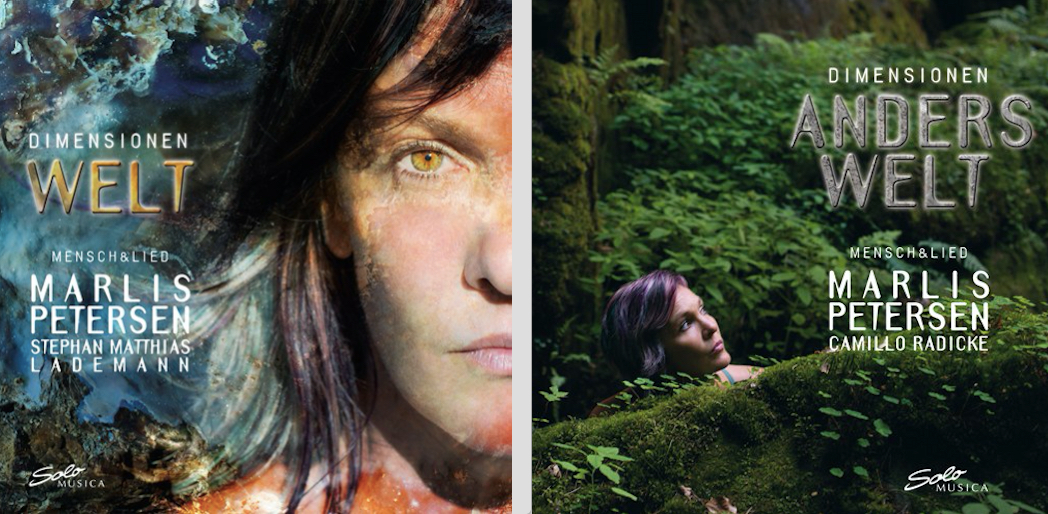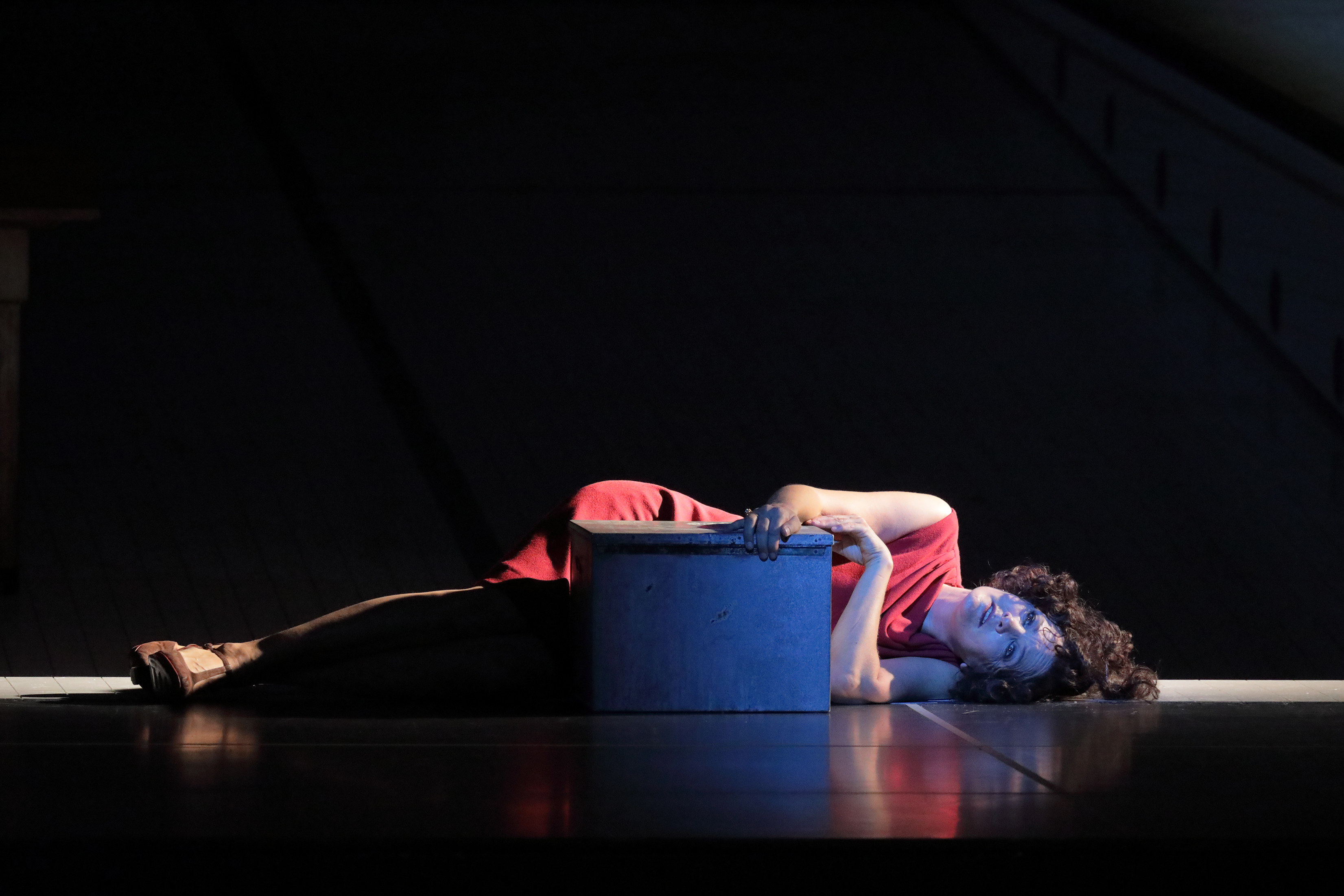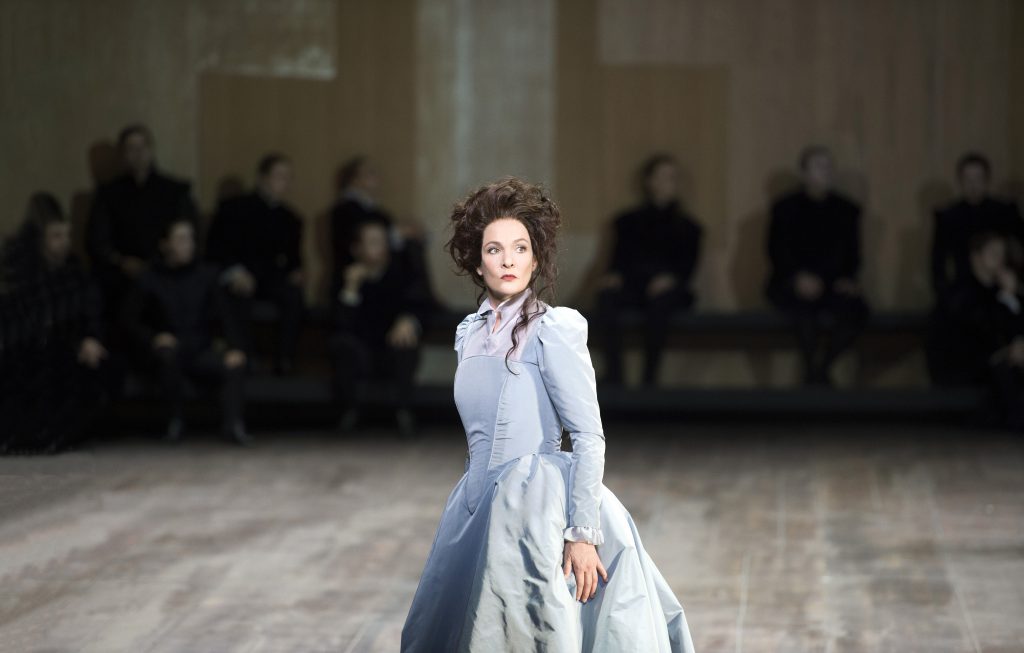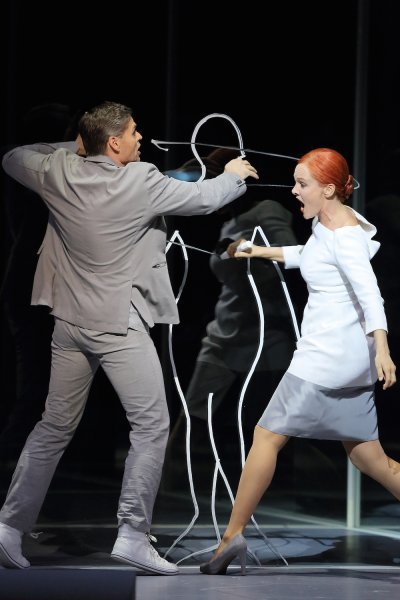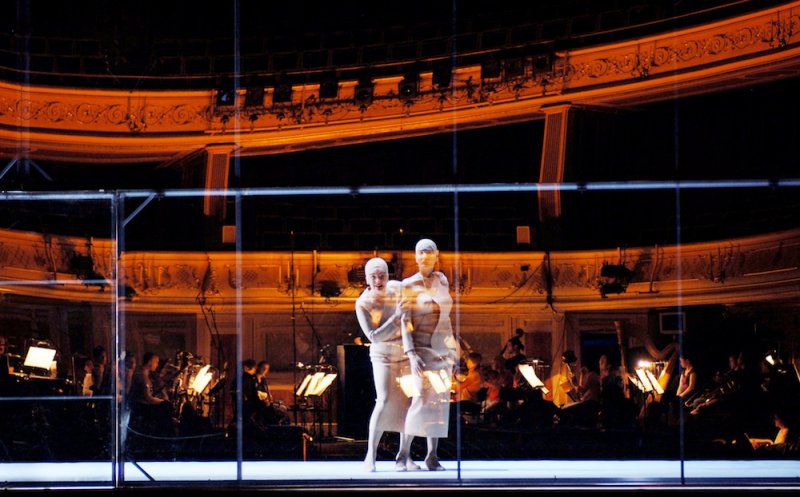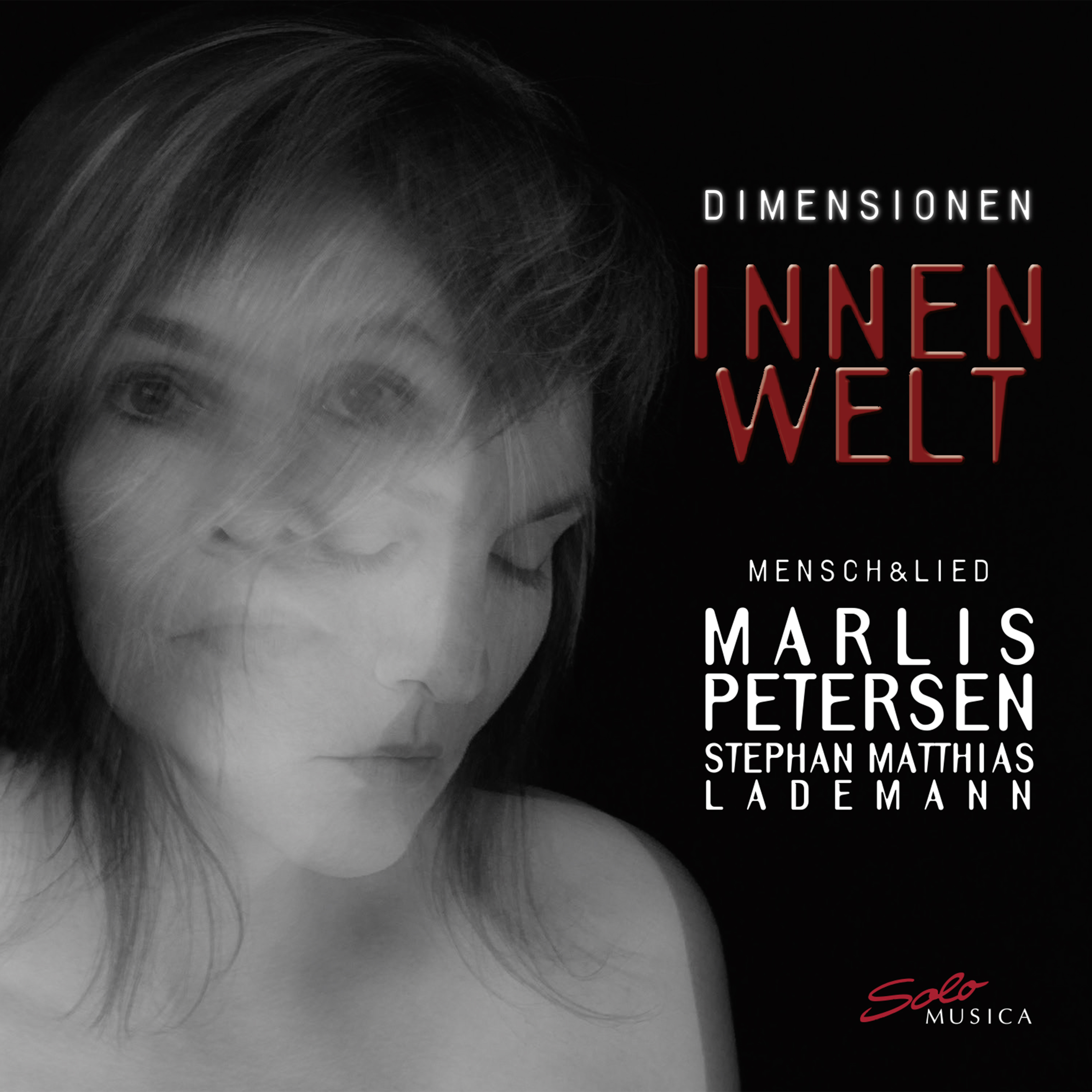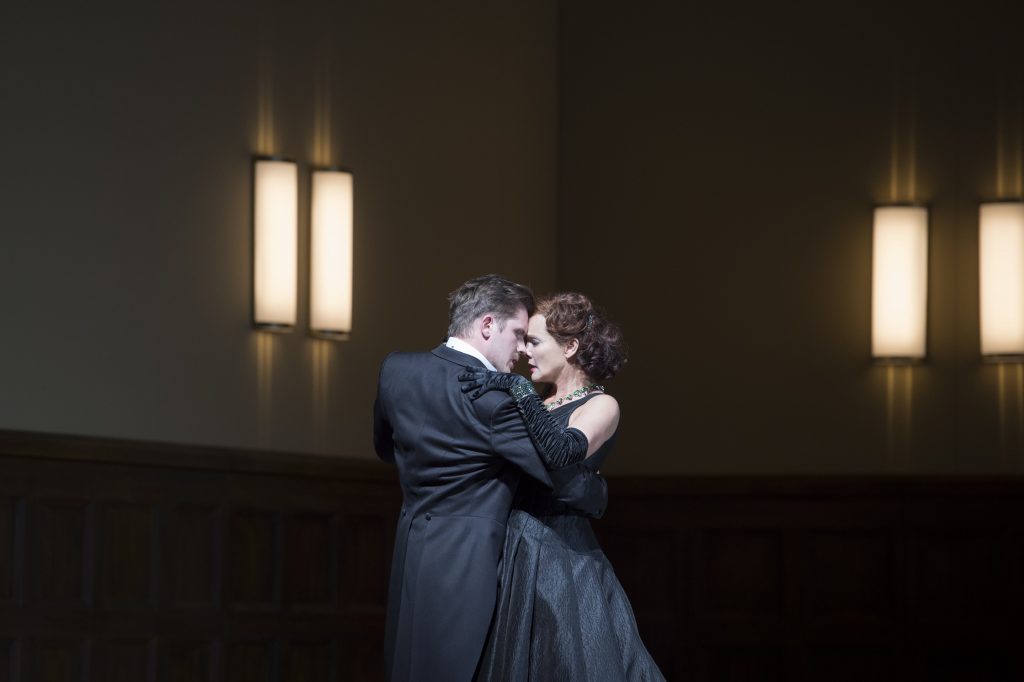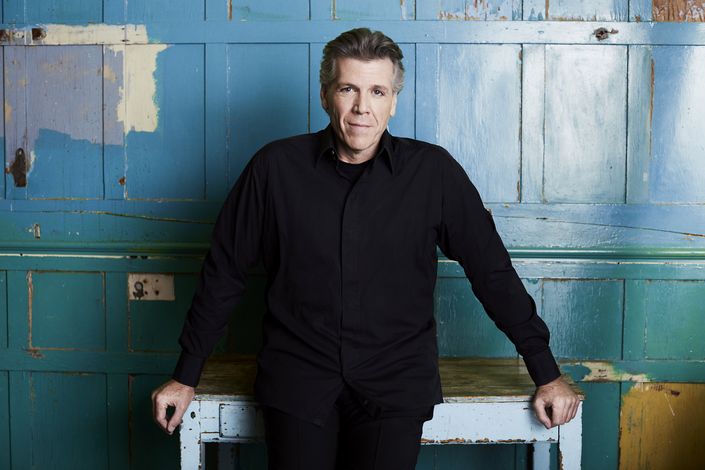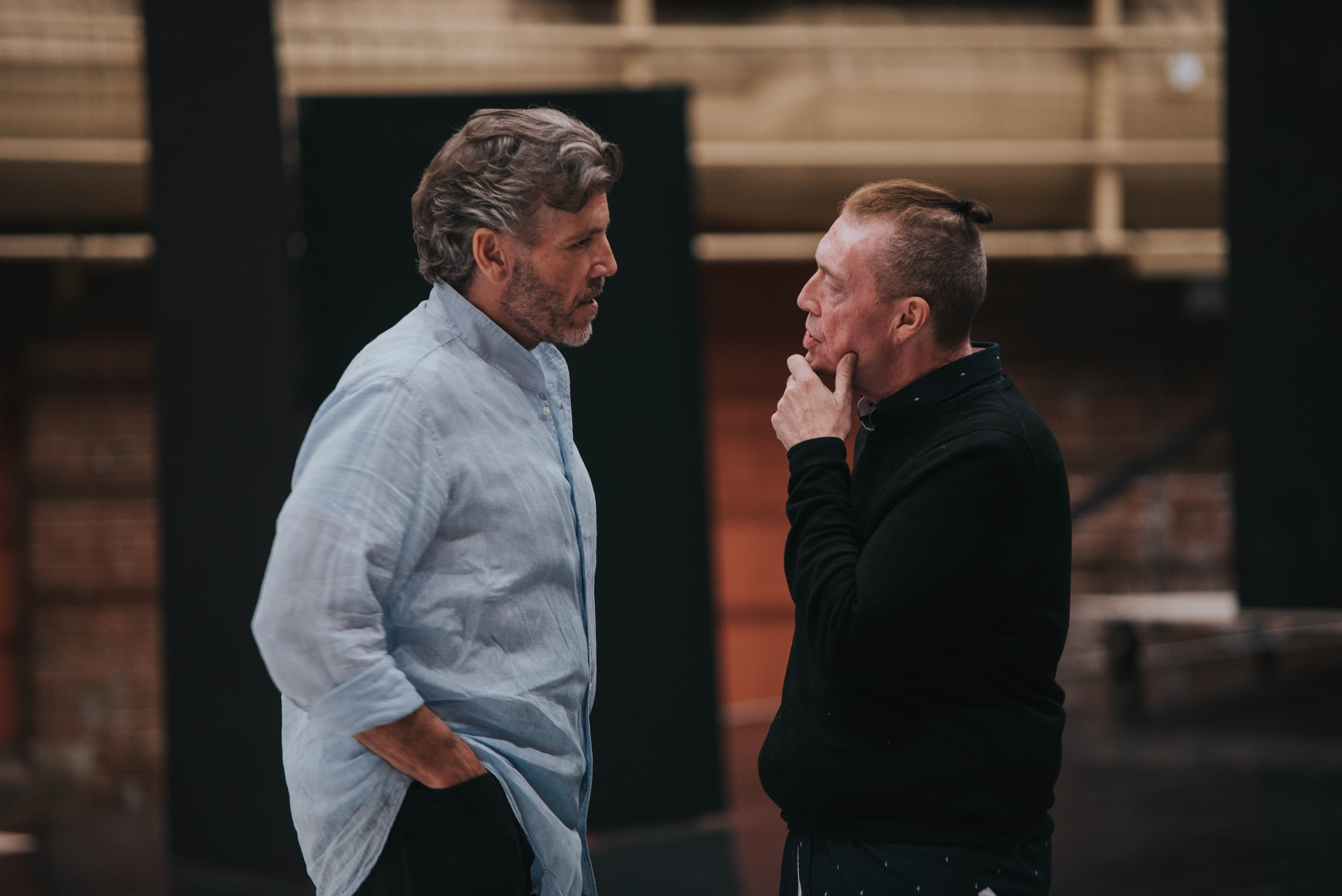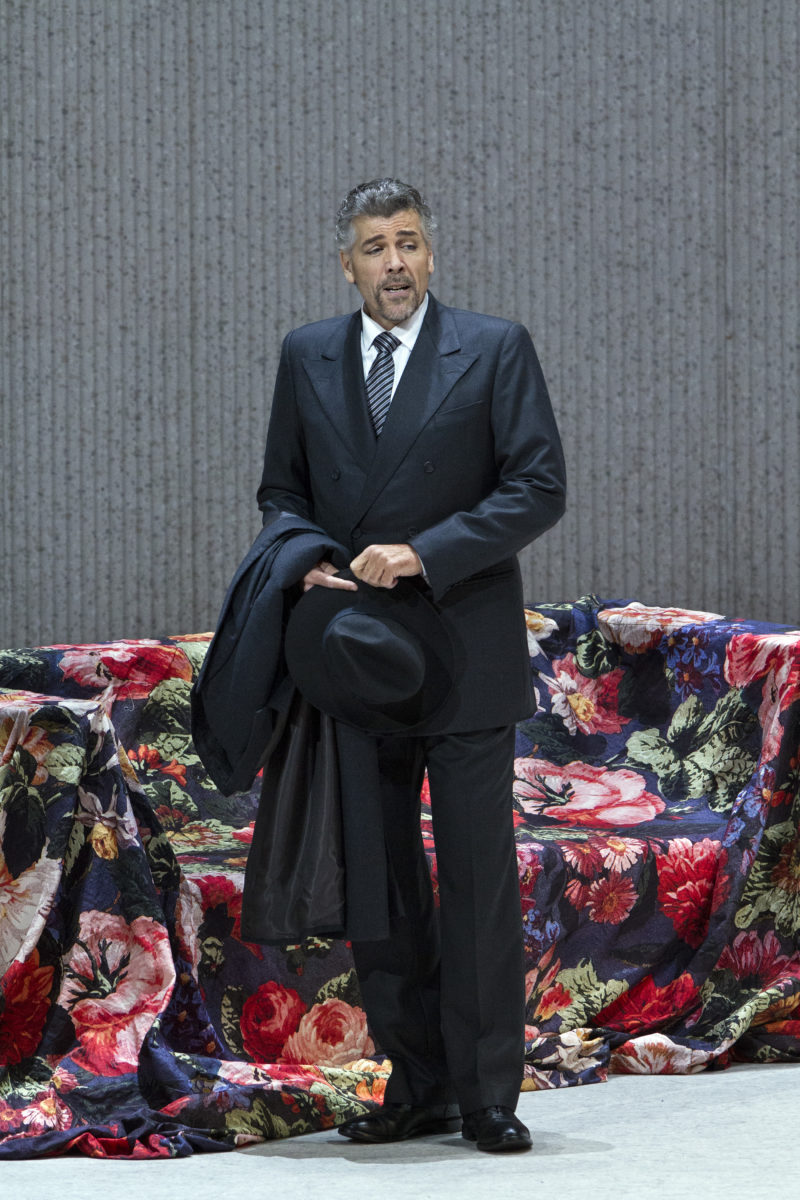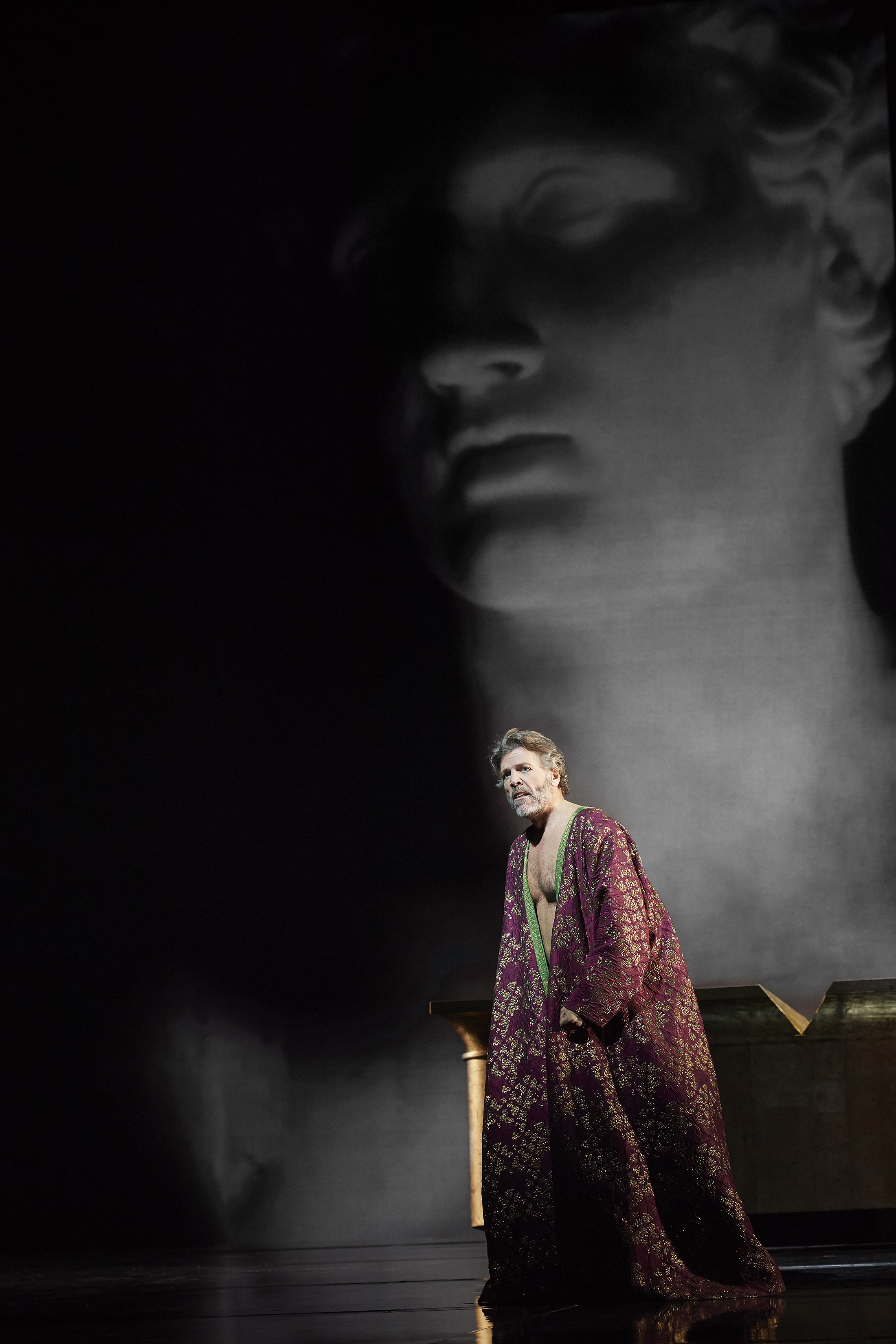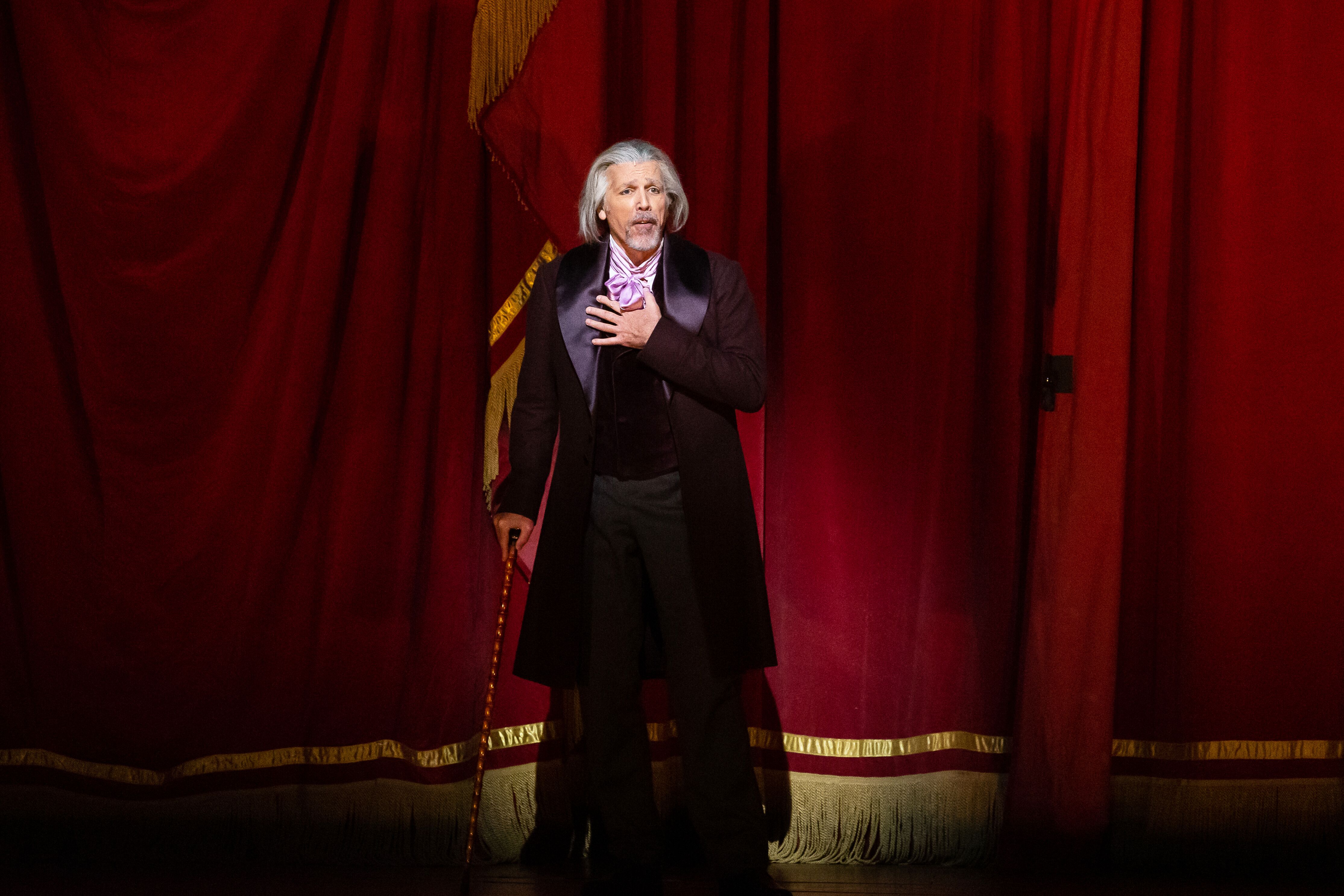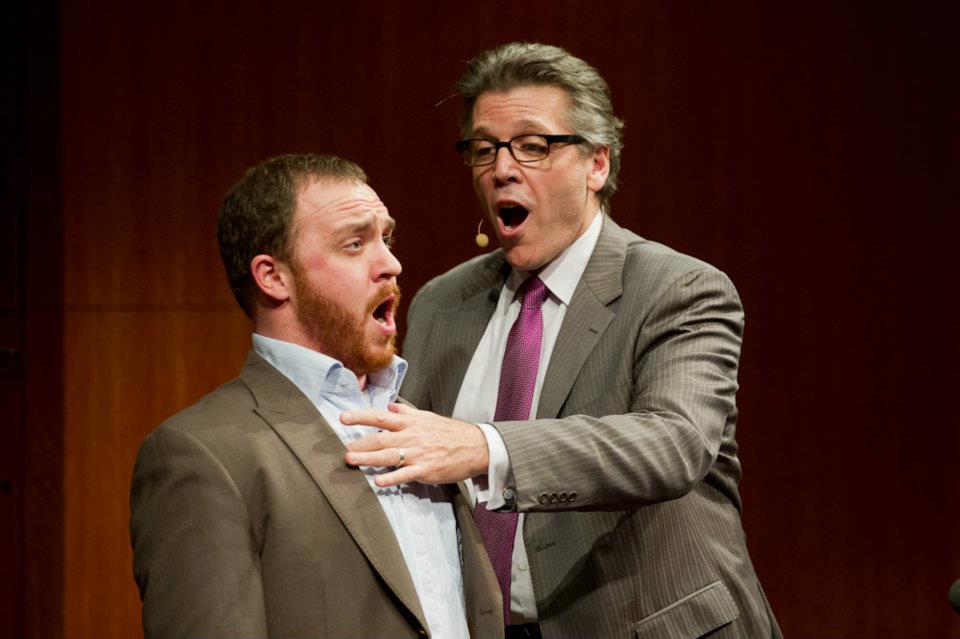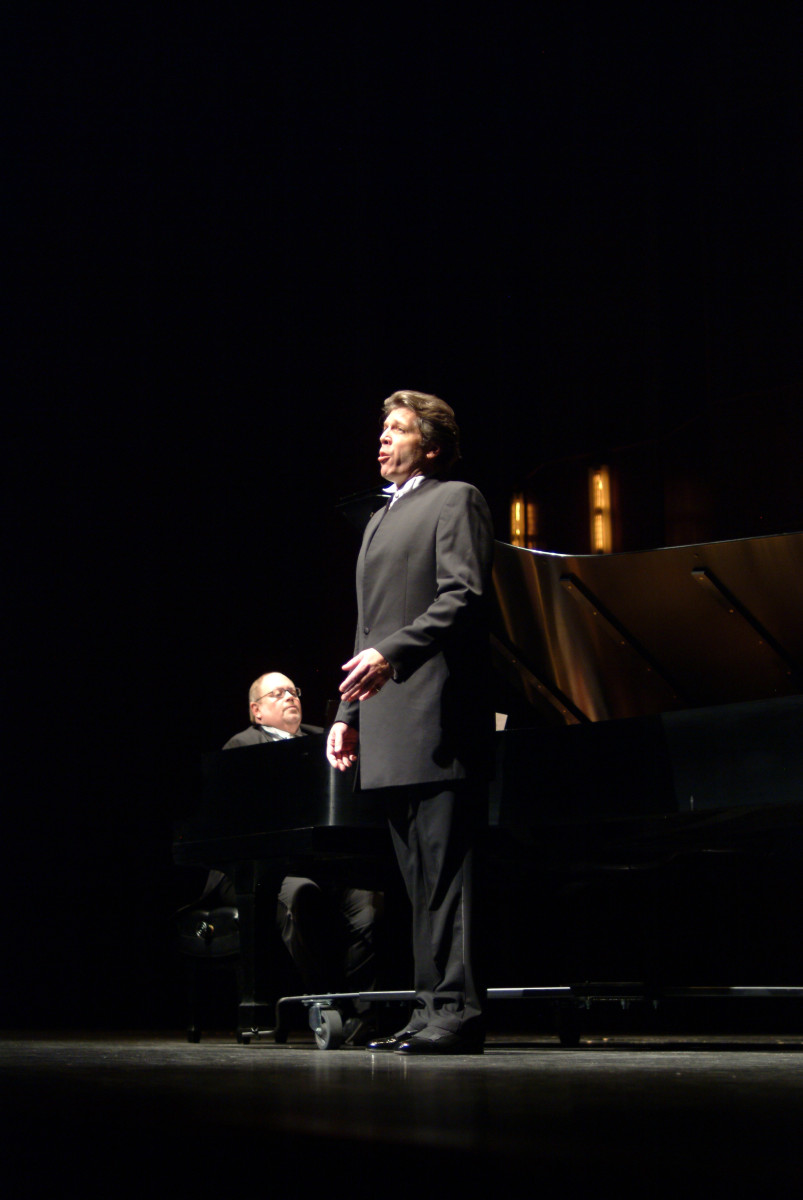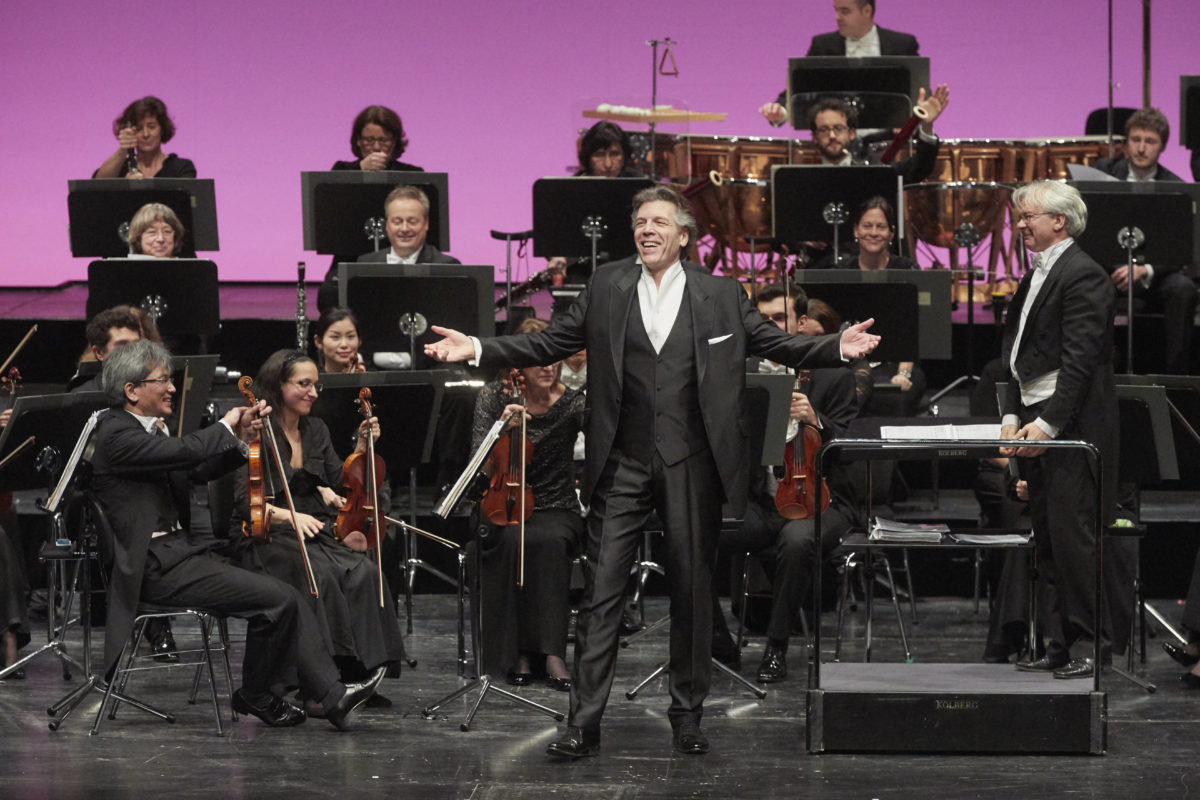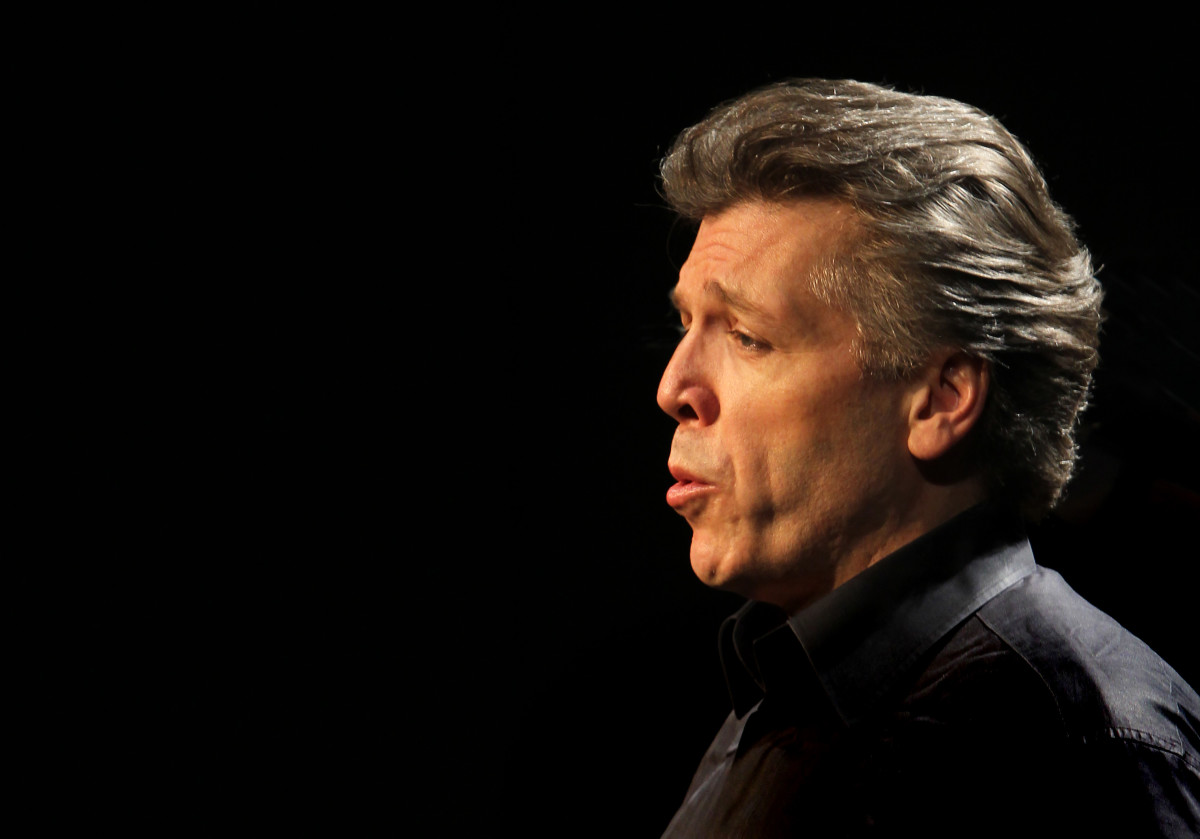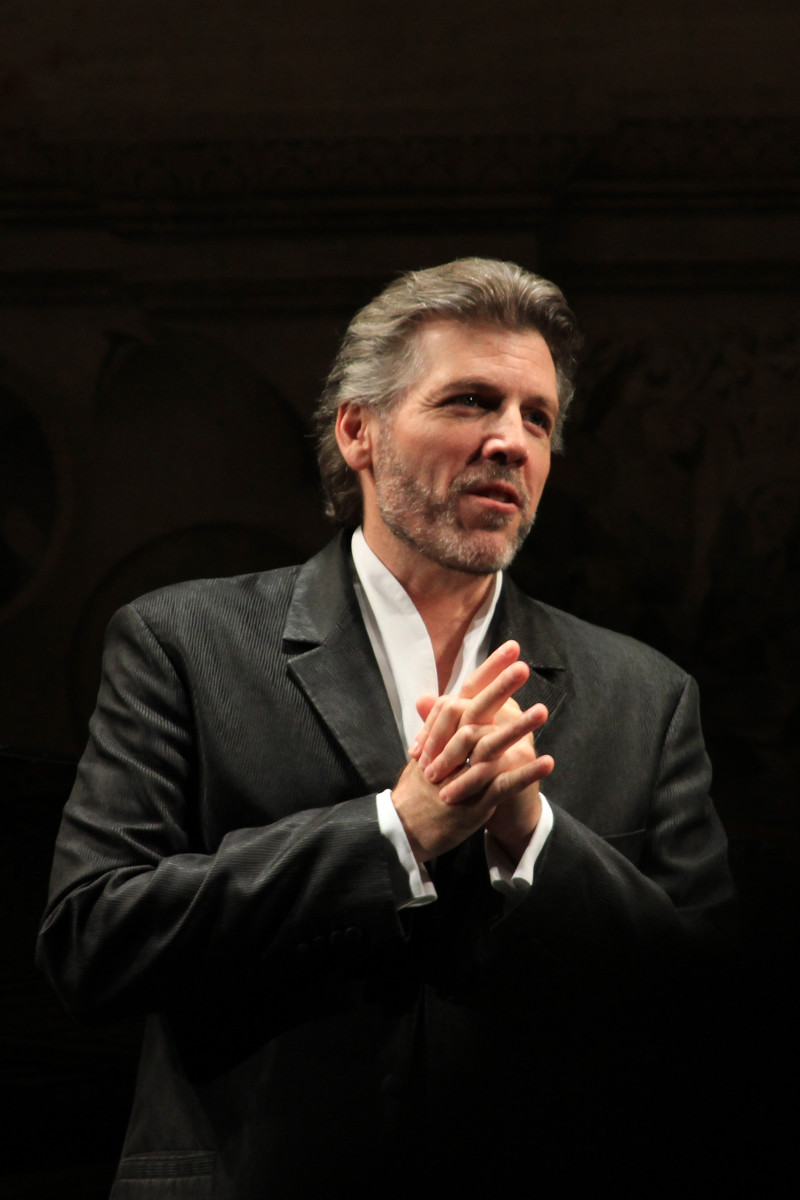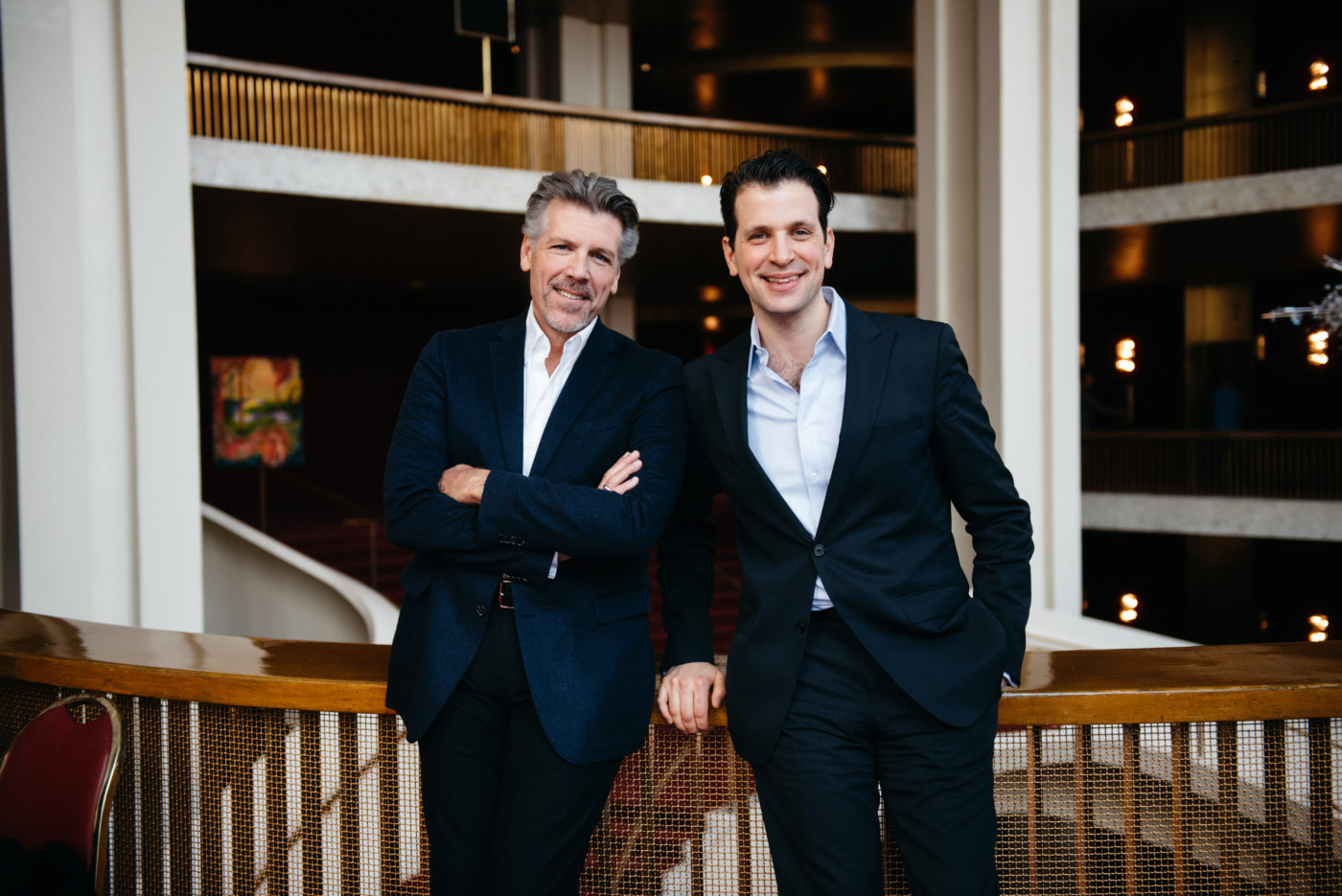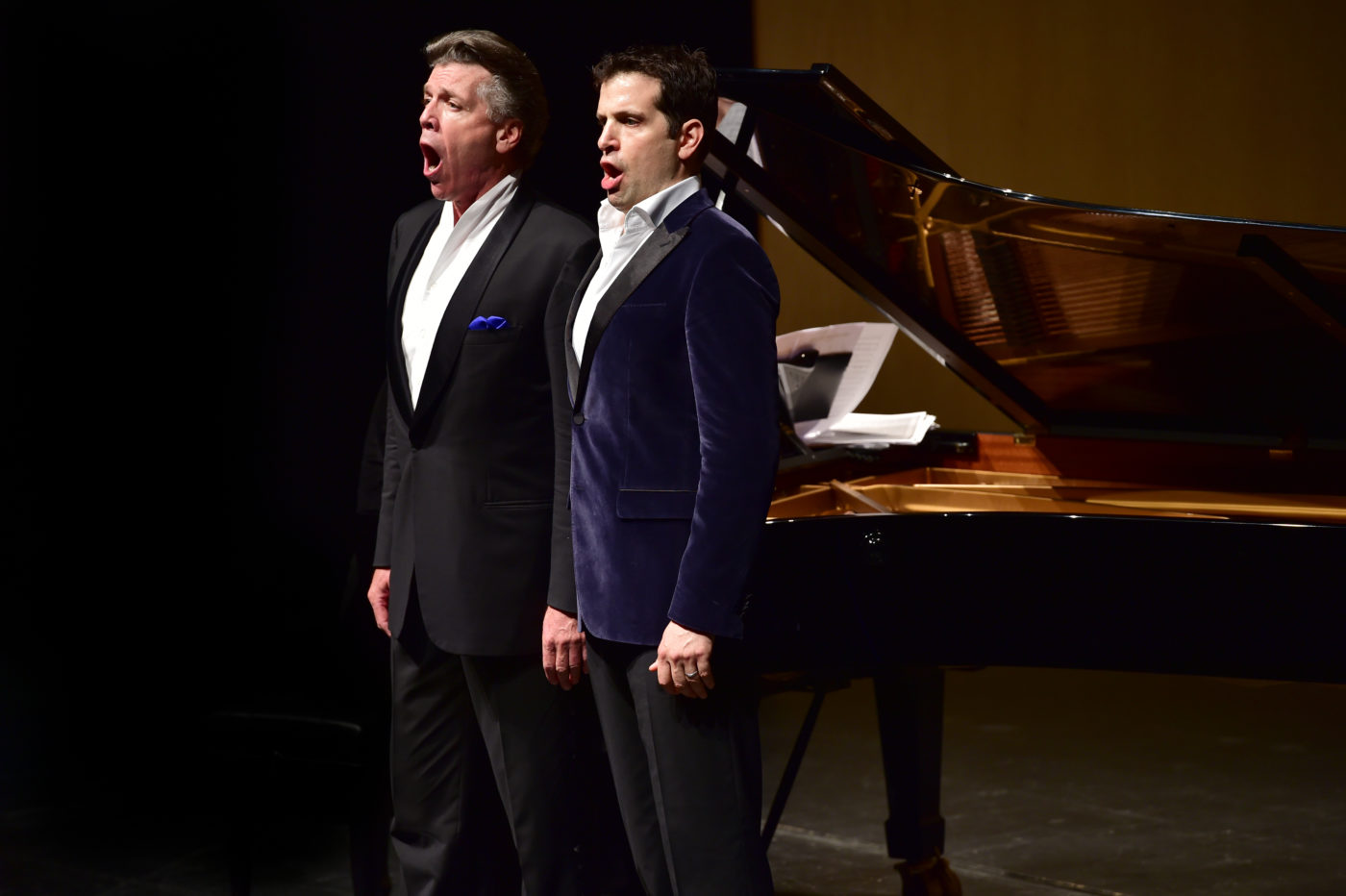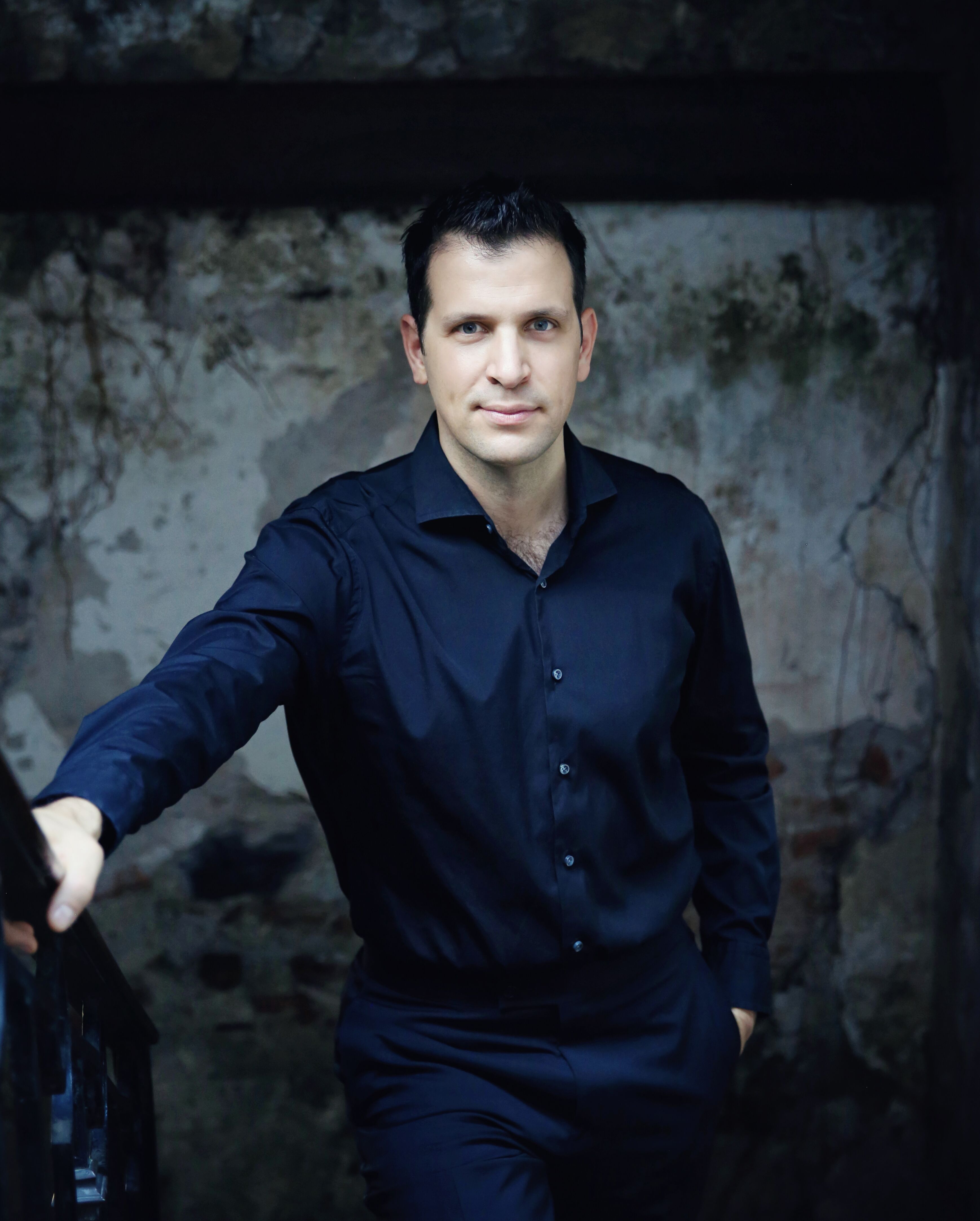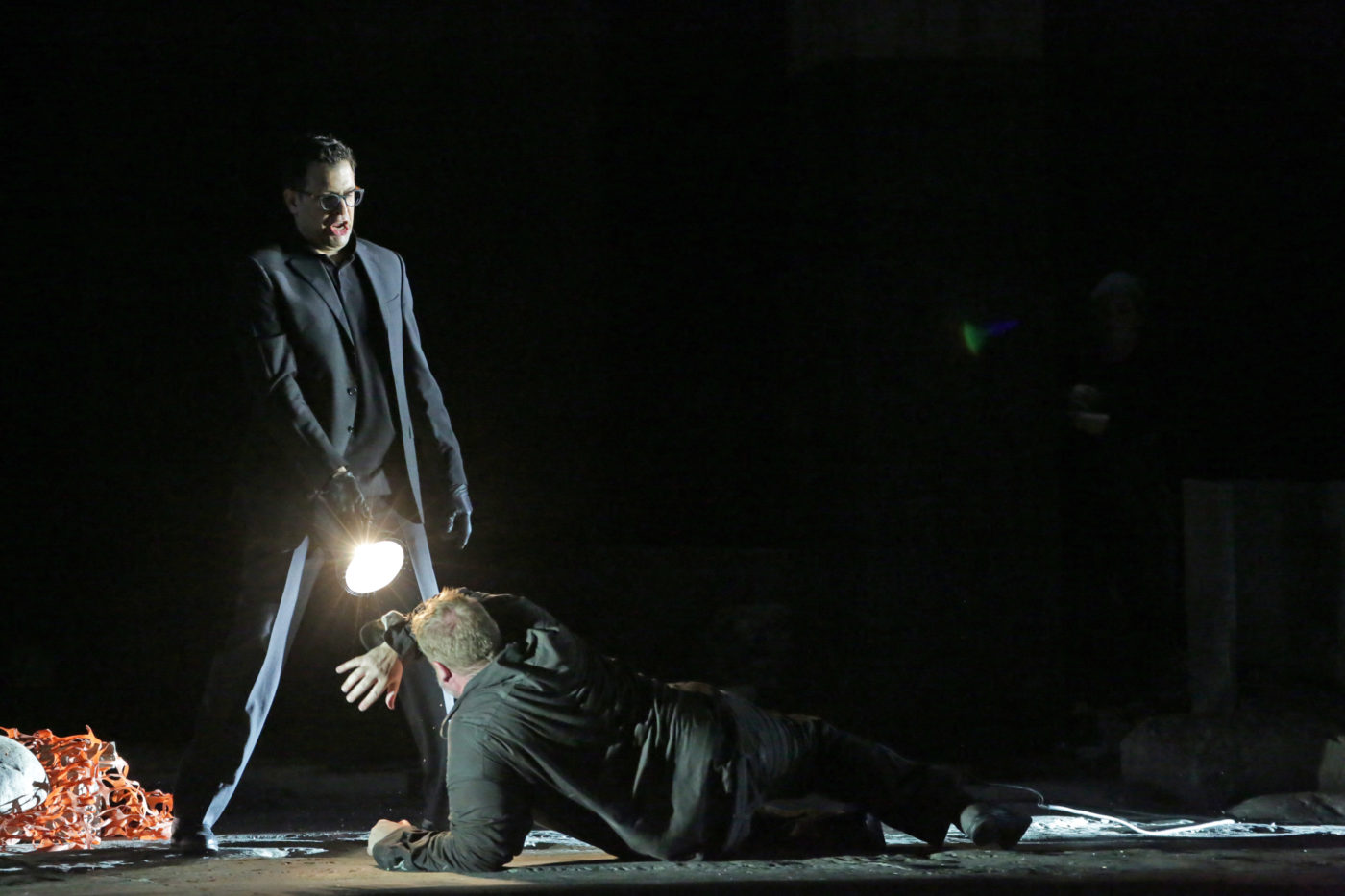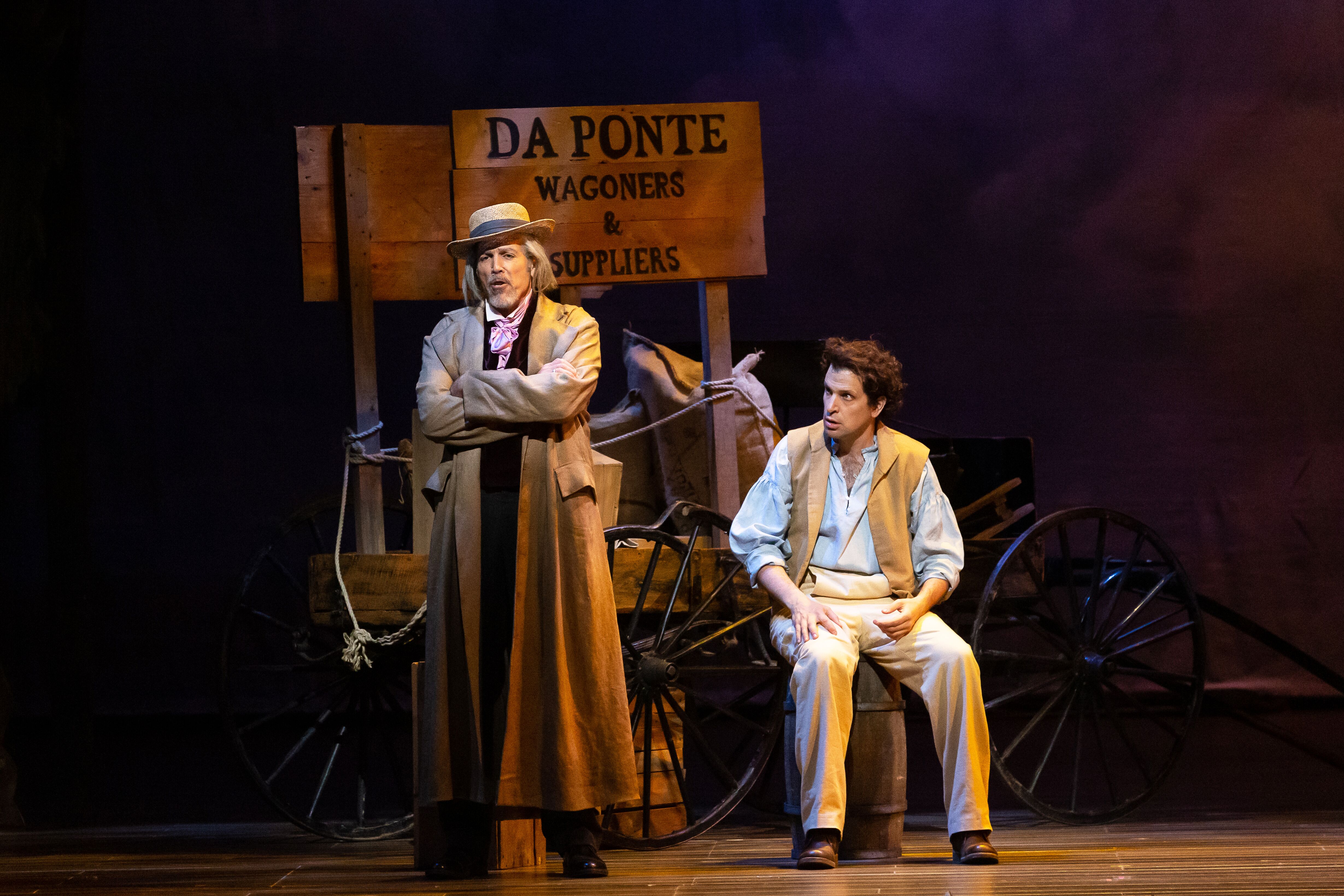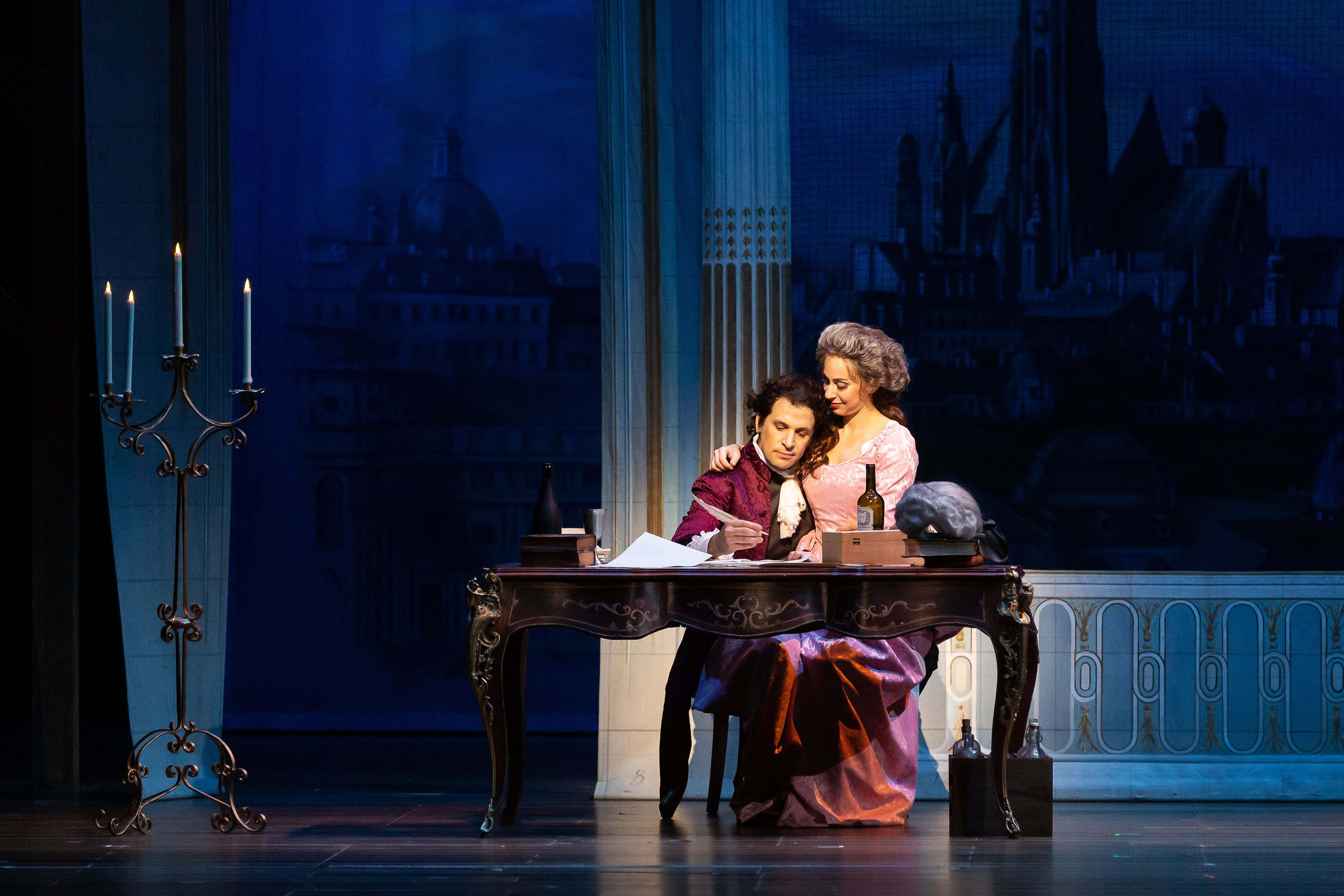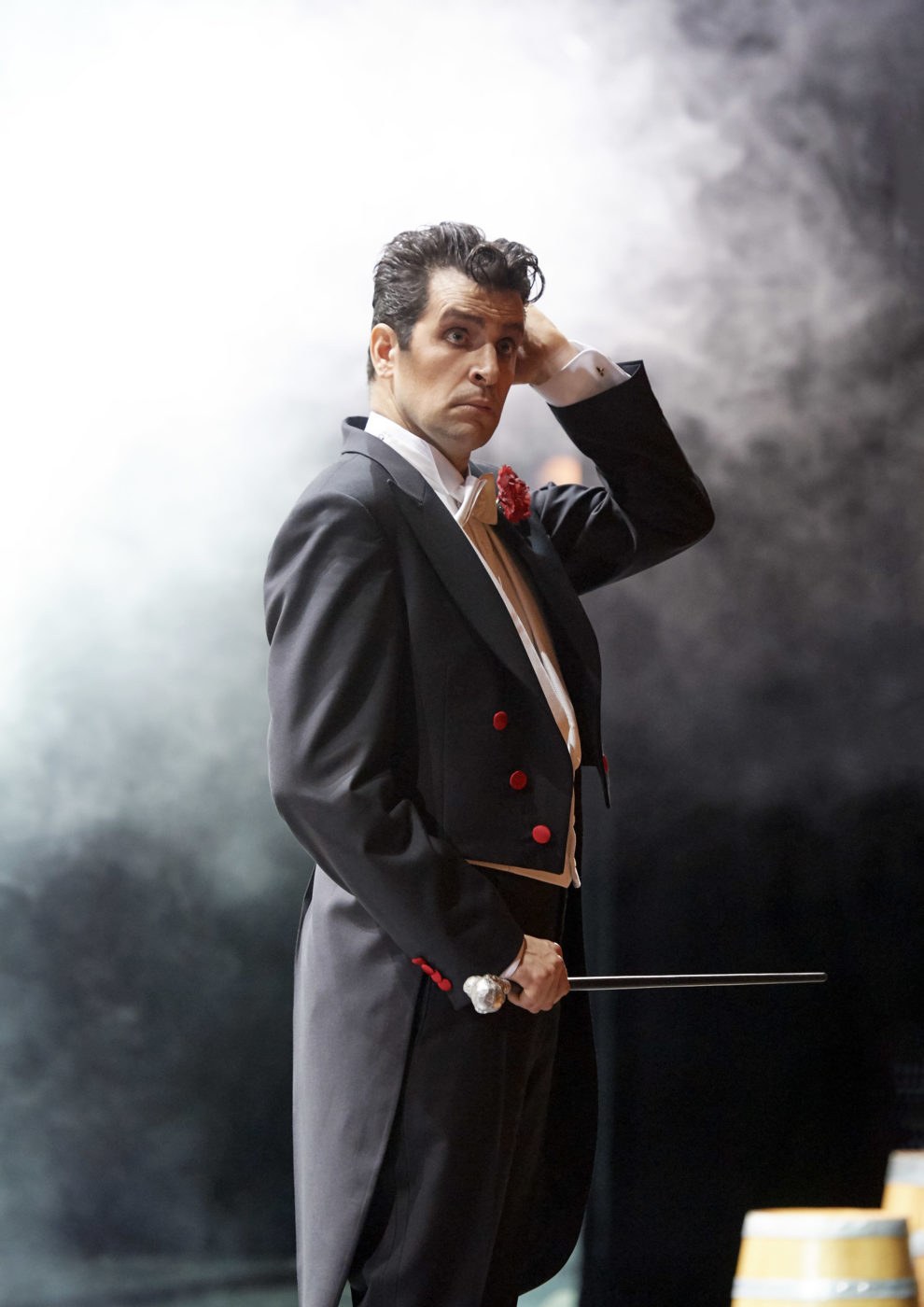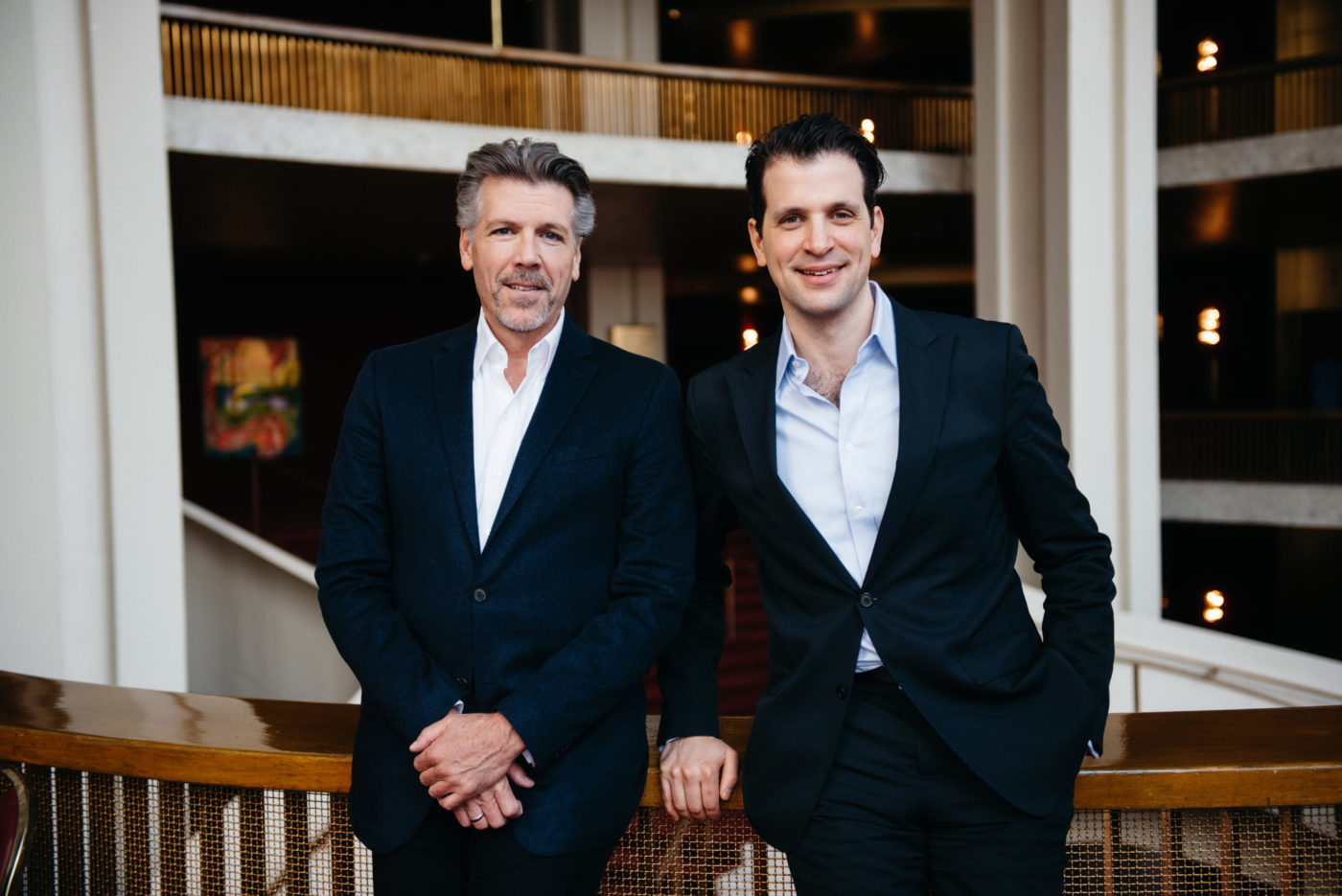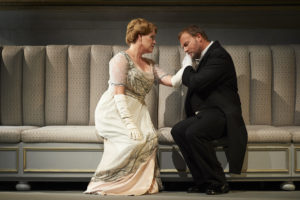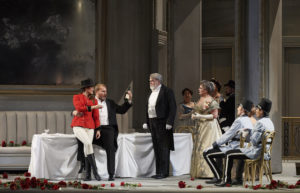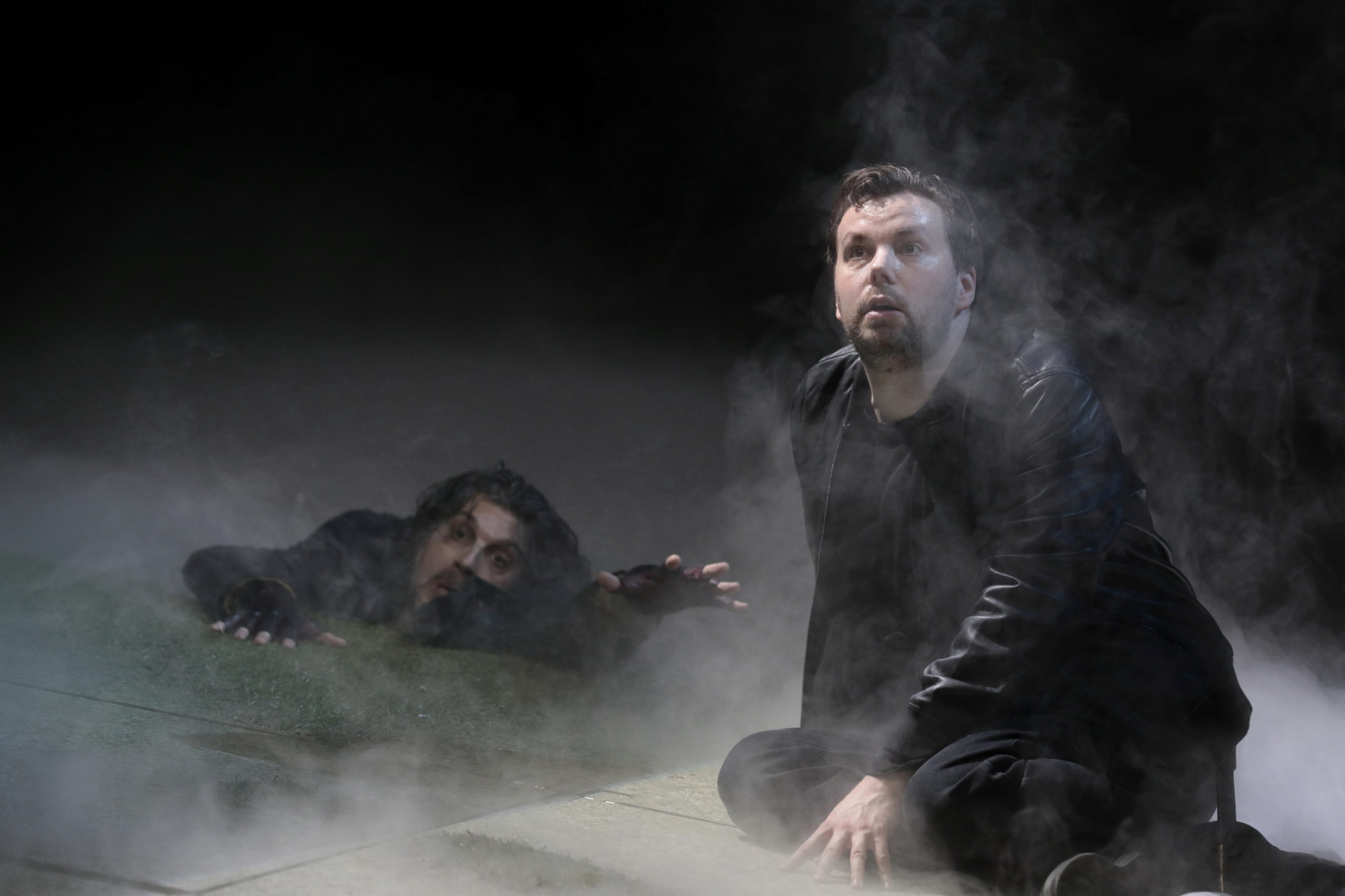
Scene from the 2019 Oper Köln production of Hamlet. Photo: Paul Leclaire
Many people have mixed memories about studying Shakespeare. One of my strongest is coming to the famous tale of the gloomy Dane in high school, and an English teacher expressing shock at being able to spout lengthy scenes from memory. That awe quickly morphed into annoyance when my impatience with what I perceived to be a reductive approach made itself known in a typically boisterous teenaged way. “Would you like to explain this passage then?” my teacher asked testily. I took her up on that offer. Passion for the play would subsequently manifest in numerous essays, reviews, poems, and theatre experiences, including playing the lead myself in an abridged university production that seemed key to my calling as a theatre artist at the time.
Owing to an equal love of opera, it has always been a source of disappointment that I’d never heard a version that satisfied, or, to my mind (and heart), fully expressed Hamlet‘s beautiful, potent mystery – not until, that is, I experienced the work of composer Brett Dean and librettist Matthew Jocelyn. Their Hamlet, with its nods to works like Berg’s Wozzeck and Strauss’s Elektra, is as much about the journey of the artist as it is about a gloomy Prince, and captures human connection (familial, romantic, inner) with every ounce of fraught complexity; the awful, awesome beauty of Hamlet‘s humanistic psychology pairing is very much a quiet, palpable force that creates momentum every ounce as much as it inspires contemplation. The theme of vulnerability – Hamlet’s, Ophelia’s Gertrude’s, even that of Claudius –runs through this 2017 work like a trickle of blood on stone. I was (and remain) as much in awe of Jocelyn’s libretto as of Dean’s score; it’s a rare if precious experience to find both exerting such equal power, in such memorable and affecting ways.
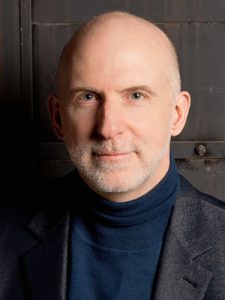
Photo: Tony Hauser
Canada-born Jocelyn is a well-known theatre figure in Europe. He’s directed numerous works, including the French-language premieres of Dancing at Lughnasa by Brian Friel (Théâtre de l’Ecrou, Fribourg), The Love of the Nightingale and Our Country’s Good by Timberlake Wertenbaker (both Atelier du Rhin, Colmar), The Liar by Corneille (Stratford Festival), Shakespeare’s Macbeth (Atelier du Rhin) Fernando Krapp Wrote Me This Letter by Tankred Dorst from his own translation, and Heisenberg by Simon Stephens (both Canadian Stage Company), as well as opera productions including Martinù’s Larmes de couteau and Alexandre Bis, Piccinni’s La Cecchina ossia la buona figliola, Boesmans’s Reigen, Gluck’s La Clemenza di Tito, Chabrier’s l’Étoile (all for Opéra National du Rhin), Chausson’s Le Roi Arthus and Strauss’s Die Frau ohne Schatten (for Théâtre Royal de la Monnaie in Bruxelles), and Donizetti’s Lucia di Lammermoor (for Oper Frankfurt). He wrote the libretto for La bal by composer Oscar Strasnoy, based on a story by Russian writer Irène Némirovsky; the opera was part of Die Trilogie der Frauen for Staatsoper Hamburg in 2010, which he directed and which also featured Schönberg’s Erwartung and Rihm’s Das Gehege. Jocelyn also wrote the libretto for Requiem, again with Strasnoy, and based on William Faulkner’s 1951 novel Requiem for a Nun; that work was presented in 2014 at Teatro Colón in Strasnoy’s native Argentina.
As well as being known for his directing and writing work, Jocelyn has also worked extensively behind the scenes. In 1995, he joined the Centre de Formation Lyrique of the Opéra National de Paris, where he developed and presented programming of semi-staged operas in the amphitheatre of the Opéra Bastille. In 1998, he became Artistic and General Director of the Atelier du Rhin (Centre Dramatique) in Colmar, a position he would hold for a decade until being named as head of the Canadian Stage Company (2009-2018). In a 2017 interview with theatre writer Robert Cushman, Jocelyn was asked him about the style of theatre he’d hoped to encourage; one which “gives preponderance to the human body as a holder of expression“, he responded, adding that “(d)espite appearances, I’m a classicist.”
That classicist side was given wonderful expression with Hamlet, which had its premiere at the Glyndebourne Festival in 2017, in a production directed by Neil Armfield and conducted by former Glyndebourne head honcho Vladimir Jurowski. At the time, I wrote in my review for the national Canadian newspaper The Star that Jocelyn’s reordering the narrative added a dramatic immediacy; there’s a psychological closeness that was achieved within and through his smart, insightful writing, one that blended seamlessly with Dean’s varied, beautifully complex score.
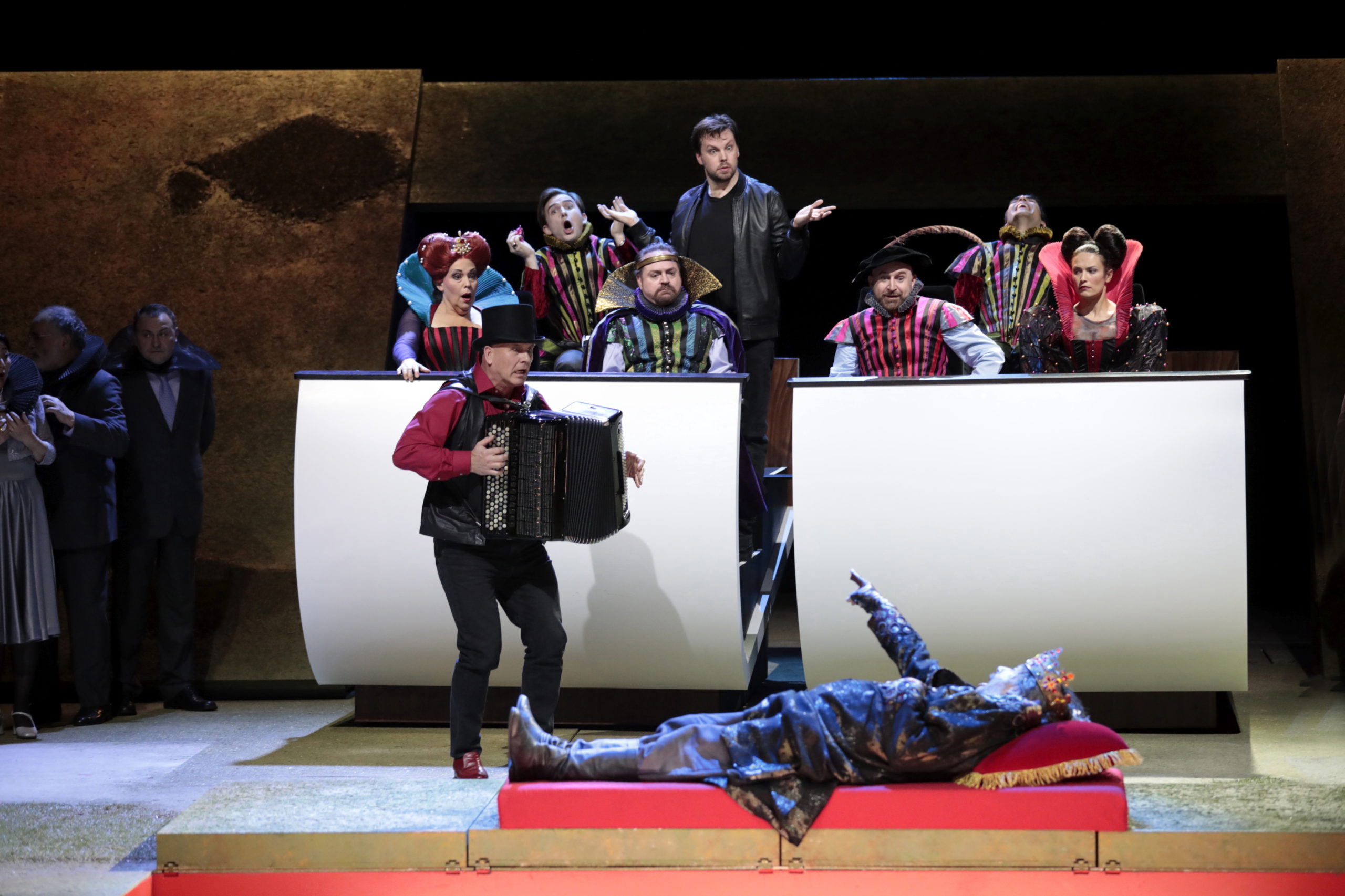
Scene from the Oper Köln production of Hamlet, 2019. Photo: Paul Leclaire
It’s an integration I suspect has deepened with Jocelyn’s own production of the opera, currently on in Cologne. Together with conductor (and composer) Duncan Ward and the Gurzenich-Orchester Köln , Oper Köln’s production (which opened on November 24th) marks Hamlet‘s German premiere. The cast includes bass Joshua Bloom in the duel role of the Ghost of Hamlet’s father and the Gravedigger, baritone Andrew Schroeder as Claudius, mezzo-soprano Dalia Schaechter as Gertrude, soprano Gloria Rehm as Ophelia, and, in the title role, tenor David Butt Philip, who sang the role of Laertes at the work’s 2017 premiere and has since performed Hamlet as well. Jocelyn and I chatted as he was in the midst of rehearsals just before opening.
How is your production of Hamlet going?
It’s going well! It’s a big opera, a huge piece in terms of its concept and in terms of its requirements. It really stretches to the limit the resources of any moderately large opera house that takes it on. So we’re stretching to the limit the resources of Oper Köln, but it’s going for the most part really well. It’s been special to see it all come together.
How much are you thinking back to the production at Glyndebourne, not just stylistically but overall? How much has that influenced what you’re doing now?
From a stylistic point of view, not at all; it was a really beautiful production and a wonderful way to discover the work in the context of opera — it went on to Australia, and it’ll be at a few more places in the coming years too, but this is a very different reading. There’s a very different series of priorities of things to bring to the fore in this production. It’s funny, I sent a note to (original director) Neil (Armfield) the day before rehearsals began here, thanking him for having created such a beautiful narrative production, because it enabled and forced me to not do that. That’s not what I wanted to do. I wanted to test the resilience of the work to a more metaphorical reading, to a parable of some kind.
So this will be more abstract?
Yes, more abstract.
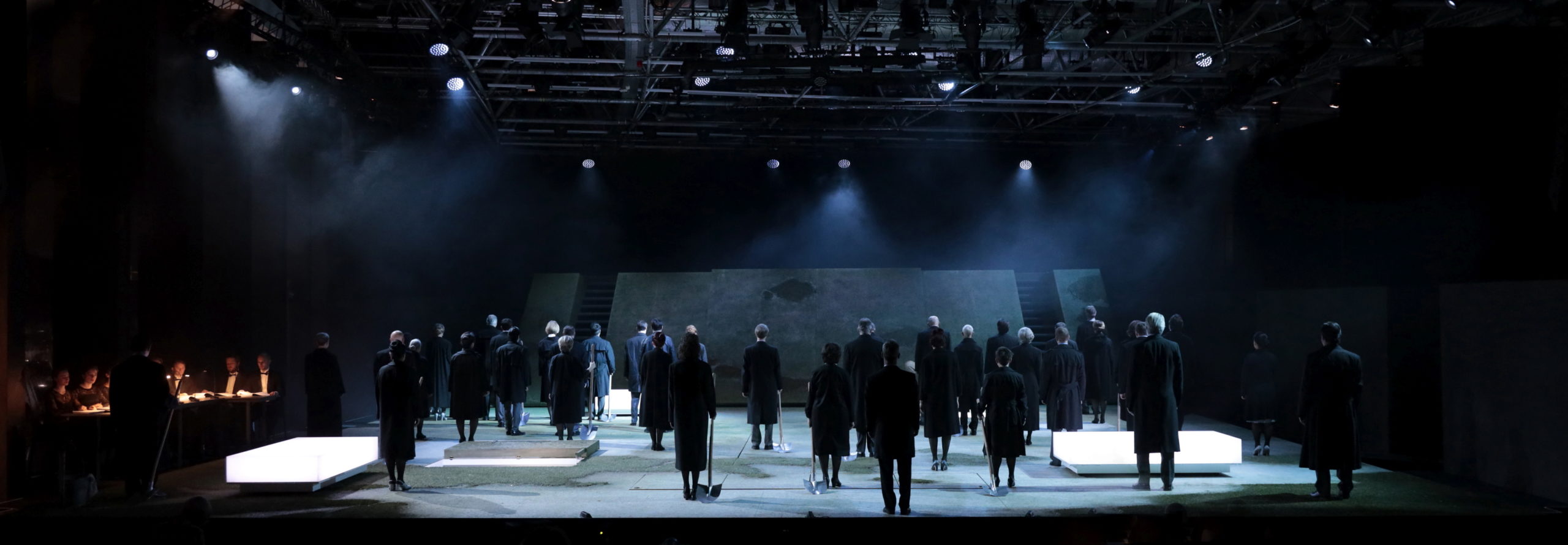
Scene from the Oper Köln production of Hamlet, 2019. Photo: Paul Leclaire
You’ve written libretti for other things but this feels different on a few levels; what’s it been like to direct Hamlet, and in Germany?
It’s interesting, I’ve always separated the works — the ones I did, La Paz, or Requiem for Cologne – when I wrote those, I wasn’t saying how I’m going to stage it; I was really trying to write a text that was going to inspire the composer and give the material needed for them, but this time even more so. Because it was Shakespeare and because it was Hamlet, and because I was not going to be directing it, I had a different kind of liberty in thinking things through and then offering them to Brett as material in which to work.
Doing it in Germany now… what’s marvelous about Germany is that they do, insofar as possible… there are resources that are made available. And there is a deep understanding of conceptual – more conceptual and more abstract – work. The audiences are looking for interpretation rather than illustration. And they’re looking for a clear perspective and a clear take, rather than a kind of more illustrative thing. So one feels a liberty working in Germany, in that it is perhaps more elastic than working for audiences that have a lesser habit of experiencing conceptual work.
And a famous play like Hamlet doesn’t have the same cultural baggage in Germany as it might for English-language audiences.
Definitely, the play is well-known, and for an English audience, it’s very different than for a German audience because a German audience will know a half dozen lines or so, but an English audience will know, for the most part, a hundred different lines from Hamlet – even if you don’t realize they come from Hamlet! The story will be known more or less clearly, so the way in which the libretto twists the story and rethinks things at times, that’s going to be much clearer for an Anglo-Saxon audience than for a German audience, but the objective of the libretto is not to have the audience say, “Oh look! He took that line here and put it there!” or “Oh what a funny twist there!” It’s very much its own thing as a story.
So in a way, working for a German audience is wonderful because either they get it or they don’t, whereas an Anglo-Saxon audience is often thinking, “Oh, isn’t that funny, that scene goes here in opera whereas it goes there in the play!” It can become a bit of a treasure hunt for English audiences, which is not the goal, but it can have that effect on audience members who know the text extremely well.
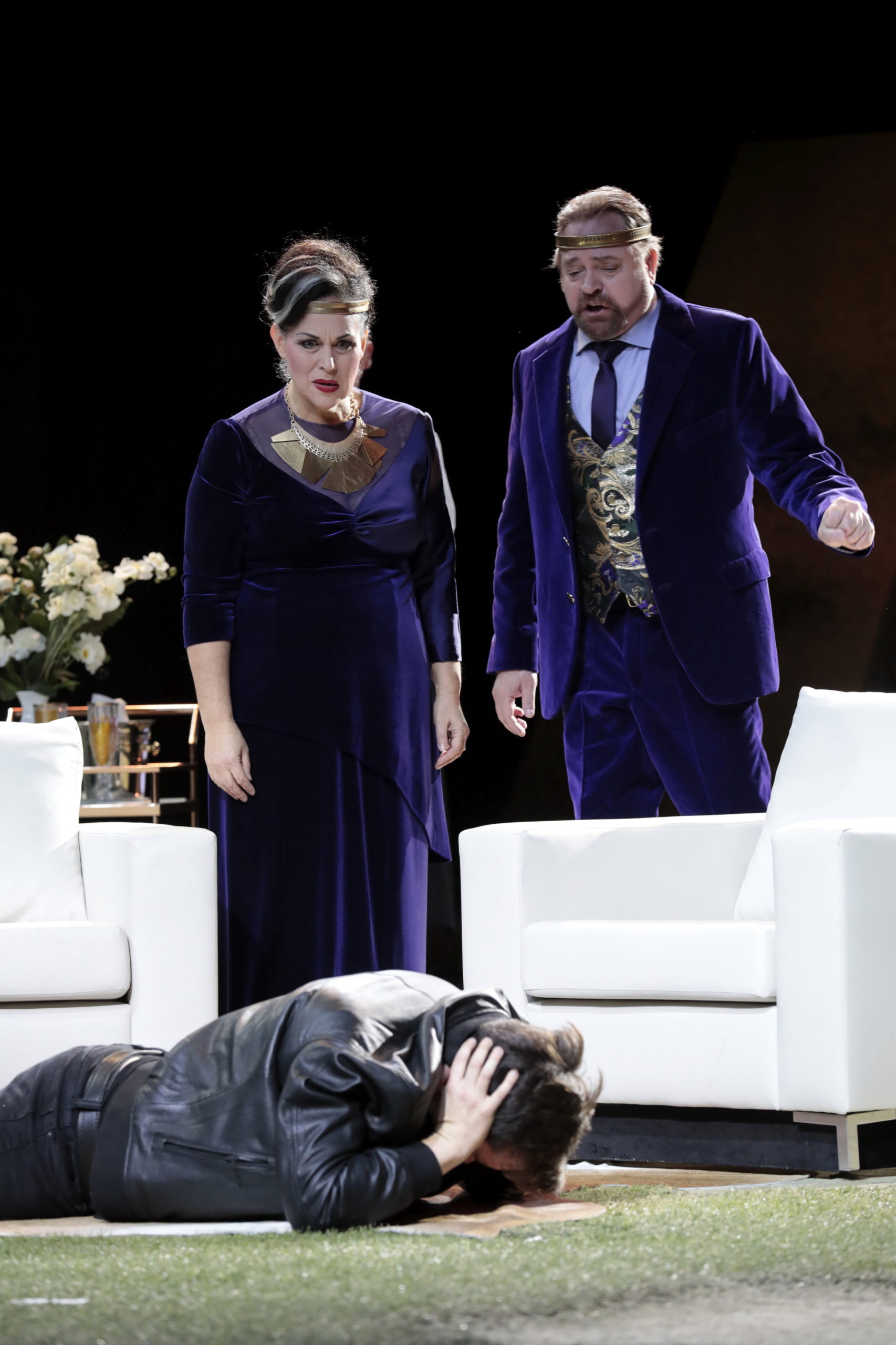
Photo: Paul Leclaire
So there’s a freedom working in Germany…
Yes, it’s a huge freedom to work on it here – and also a good way of making sure that the story works on its own without being compared to anything.
It’s not like you’re presenting Goethe!
That’s right!
What’s been your process working with the cast?
This is a very actor-heavy – or acting-heavy – opera and production. It really is like acting Shakespeare. You have maybe a quarter or a fifth of the text, but every singer has the full text in their minds – they’ve obviously all read Hamlet before coming into rehearsal. It does require huge dexterity with text. It’s not a text from a Bellini opera, it’s Shakespeare, and every word in the libretto comes from Hamlet except for a couple of chorus passages, so there’s a need for total versatility with language, that tasting, that love of language – the French say “dégustation” – that absolute enjoyment of the language on the tongue and in the mouth.
And because we’re working on a very bare stage, relationships are key, because there’s nothing to hide behind, so the veracity of what the singers are experiencing and communicating to each other and receiving from each other is absolutely essential. We also don’t have huge amounts of time, but before hitting the set itself we had four weeks of time in the rehearsal room to really massage out the essential elements of the opera, the essentially elements of the text, and really explore the spatial relationships and dynamics between characters. And again, time is always the most precious ally one can have when trying to deepen the relationships which will work, whether musically or textually or dramatically.
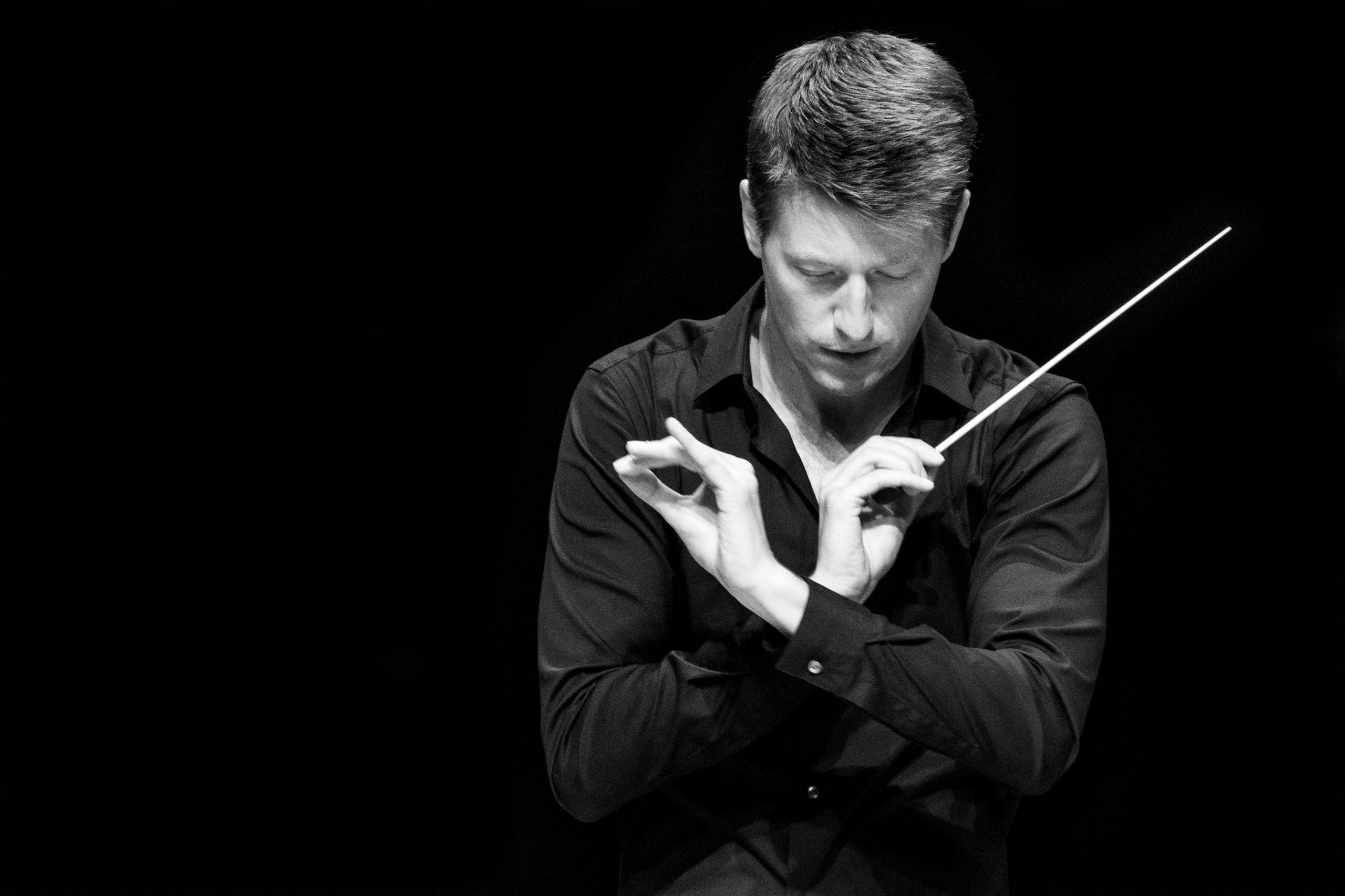
Photo: Alan Kerr
I would imagine Duncan Ward has been key to that also.
Duncan is one of those conductors of his generation who is most adept at contemporary music. He’s extraordinarily well-read musically and extremely sophisticated and nuanced in his understanding of the score. He was in the rehearsal room from the second week onwards, and he’s been not only a terrific ally but partner and collaborator, and he is really going to be the one to bring the show to life every evening, because he’s got a wonderful relationship with the orchestra and a wonderful relationship with the singers. He is amazing at holding all these musical textures and musical fabrics together.
The libretto and the score are very intimately linked in this work; how has that intimacy changed in terms of your approach in directing?
I think that we were very blessed, Brett and I, to come together over a piece such as Hamlet, and to have such similar tastes and such similar desires with regards to this work. There were some quite radical decisions I made as a librettist. I’d say the more radical the decision, the more great the appetite with which Brett jumped on it; he could hear it. When you’re working with a composer, your chief goal is to write things that make him or her hear music and want to create a musical universe around it – so we were blessed in that sense.
In this production I’d say there are a few things that have changed: Brett has added a few bars of music – a few passages here and there, a little bit of chorus to a couple moments – and I added maybe two lines to the text. But I did this a year ago now so it’s in the new score, but there are things I felt had been missing in the original version, and I wanted to draw special attention to them in this version. I wouldn’t say things have changed; it’s more just the joy of rediscovering and taking full advantage of this marriage of text and music you were talking about.
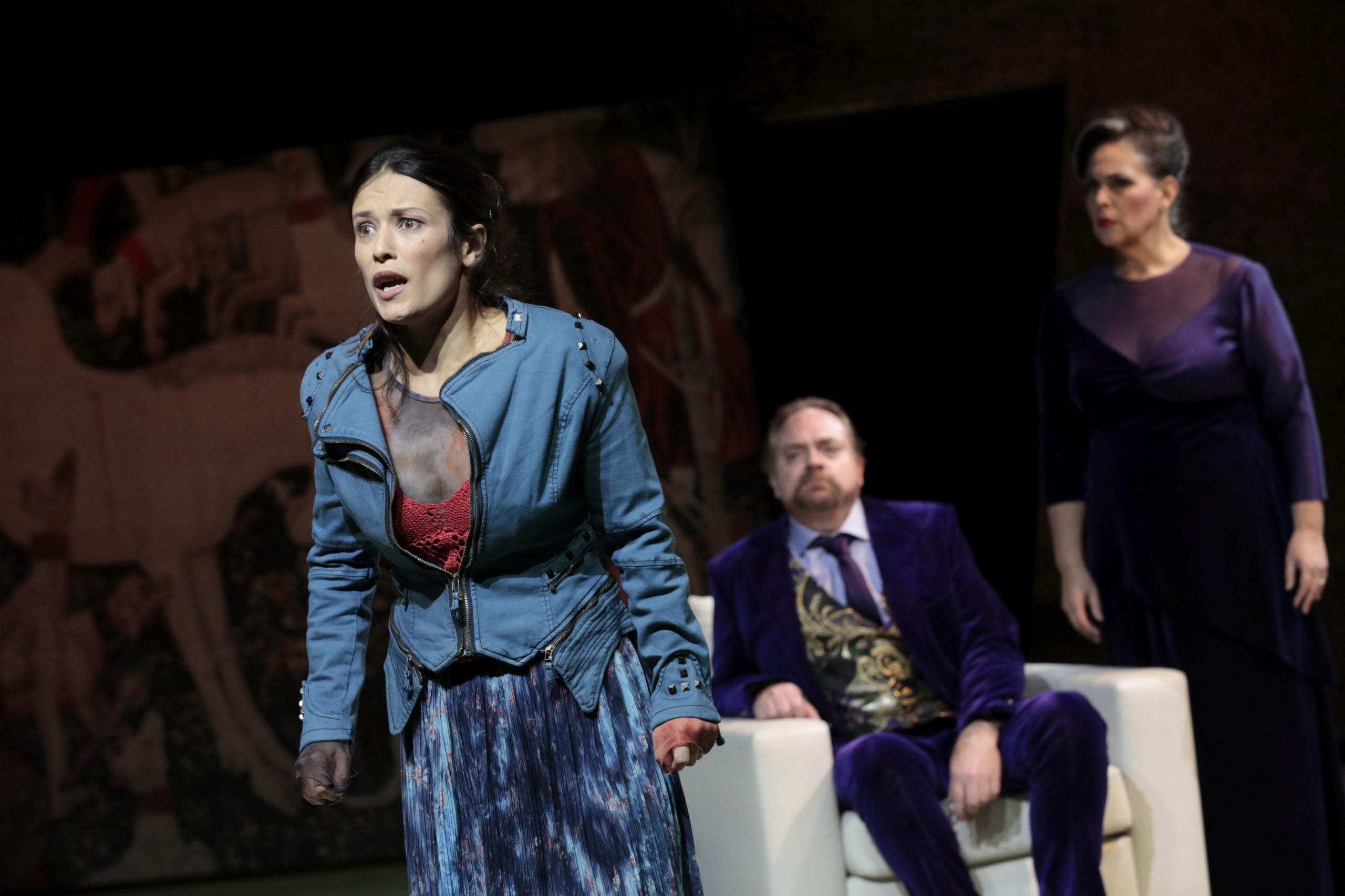
Scene from the Oper Köln production of Hamlet, 2019. Photo: Paul Leclaire
So not change so much as evolution…
Yes, a good evolution. This piece is now out there, and hopefully what you’ve heard in terms of an integration of text and music is also heard by other opera houses and it gets produced around the world. Hopefully now it will be part of the 21st century repertory. We’ve been very lucky and very blessed; it went from Glyndebourne to Australia, and it will also be presented by a few organizations in the coming years. For a contemporary opera to have been done with so many houses within a few years of its creation is a pretty lucky thing! Obviously there is an appetite for cracking open this old chestnut and experiencing it in a new and hopefully pertinent way for the 21st century.

